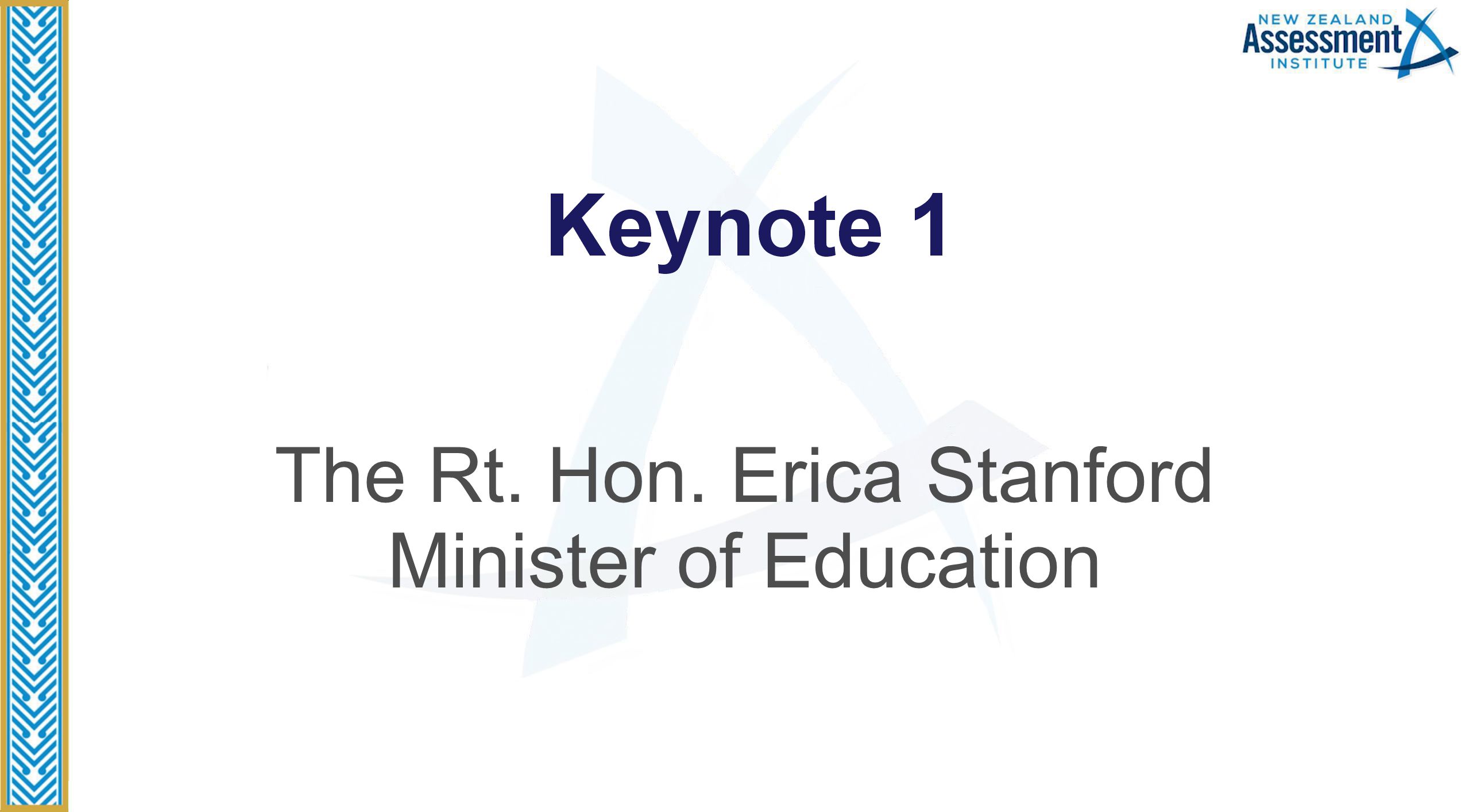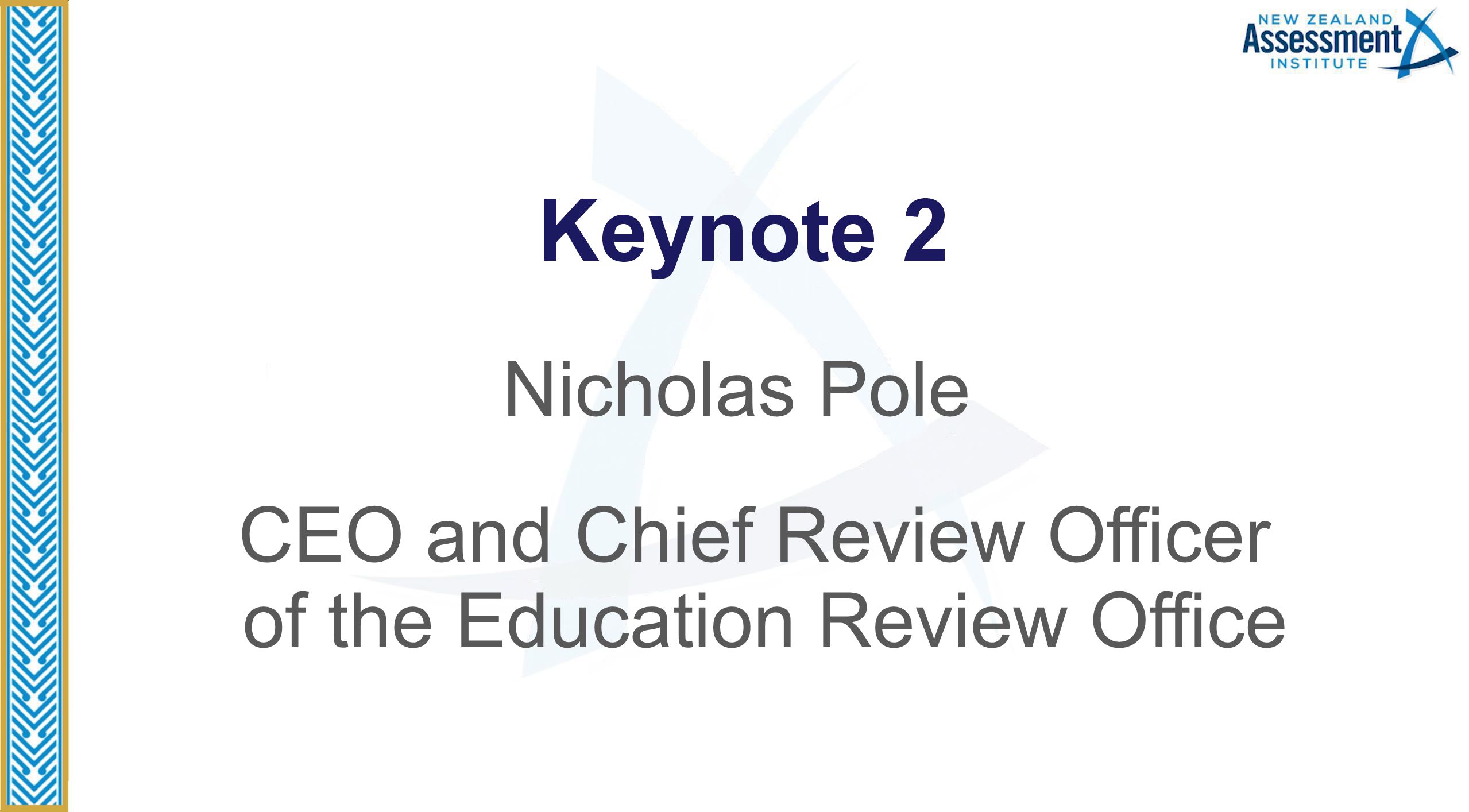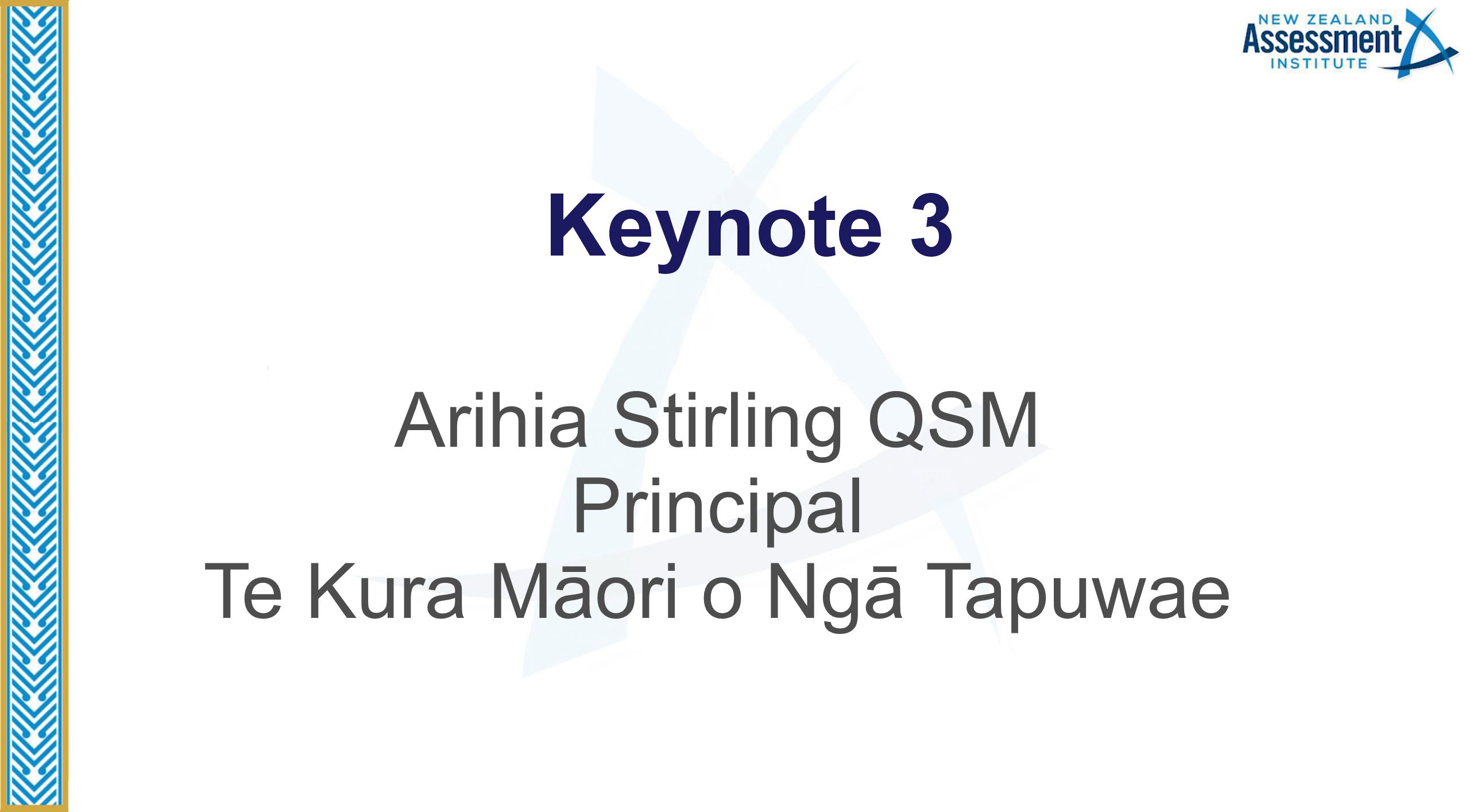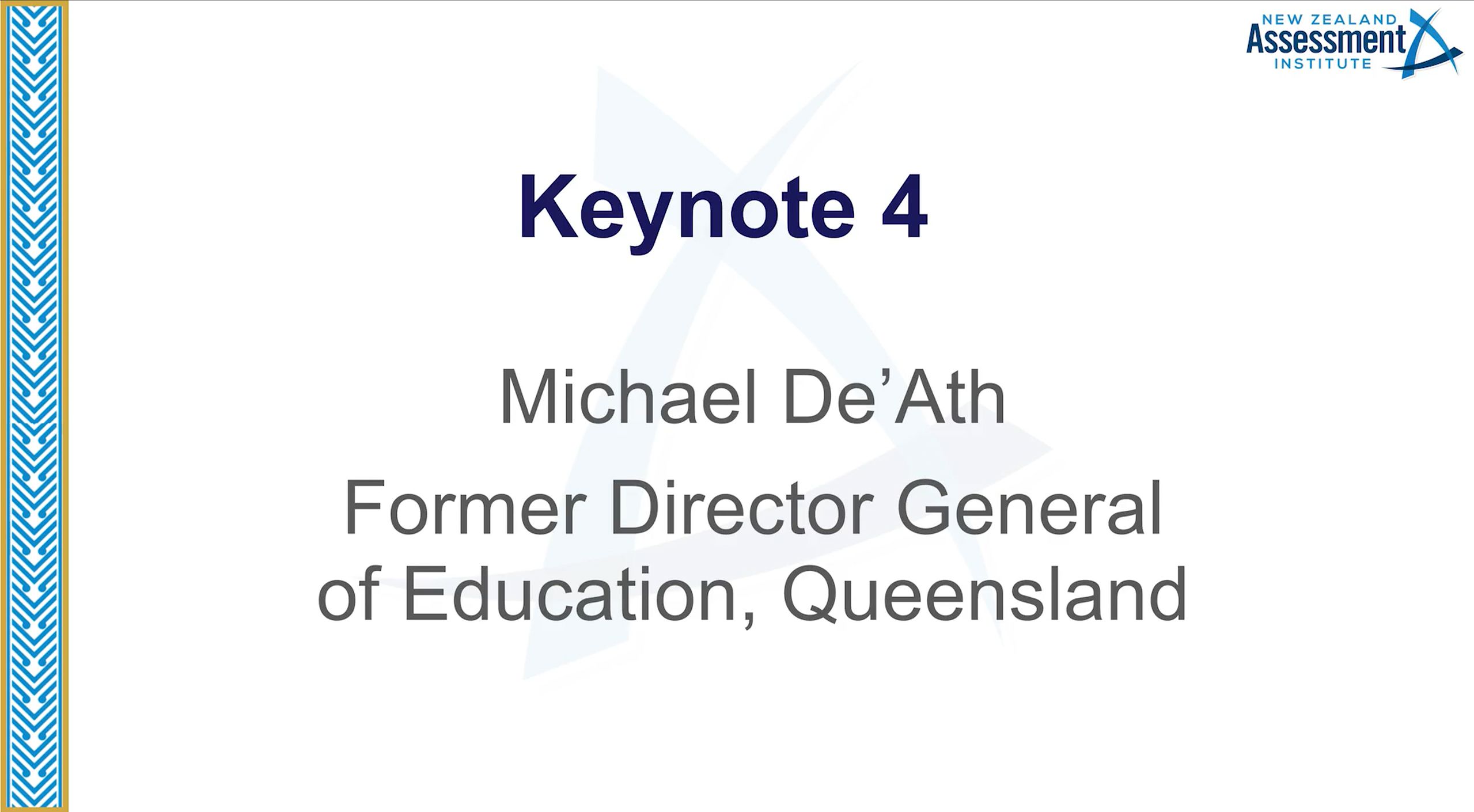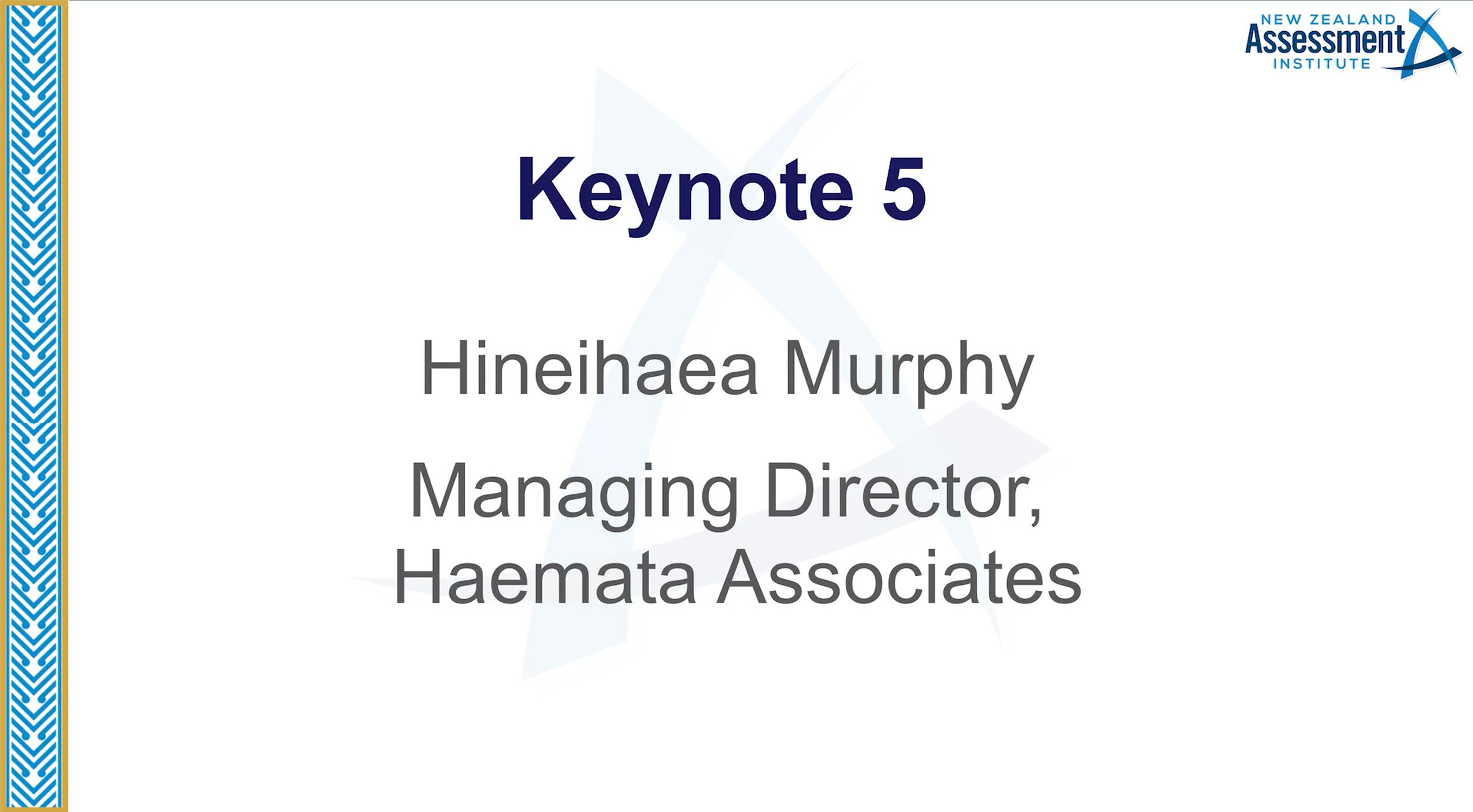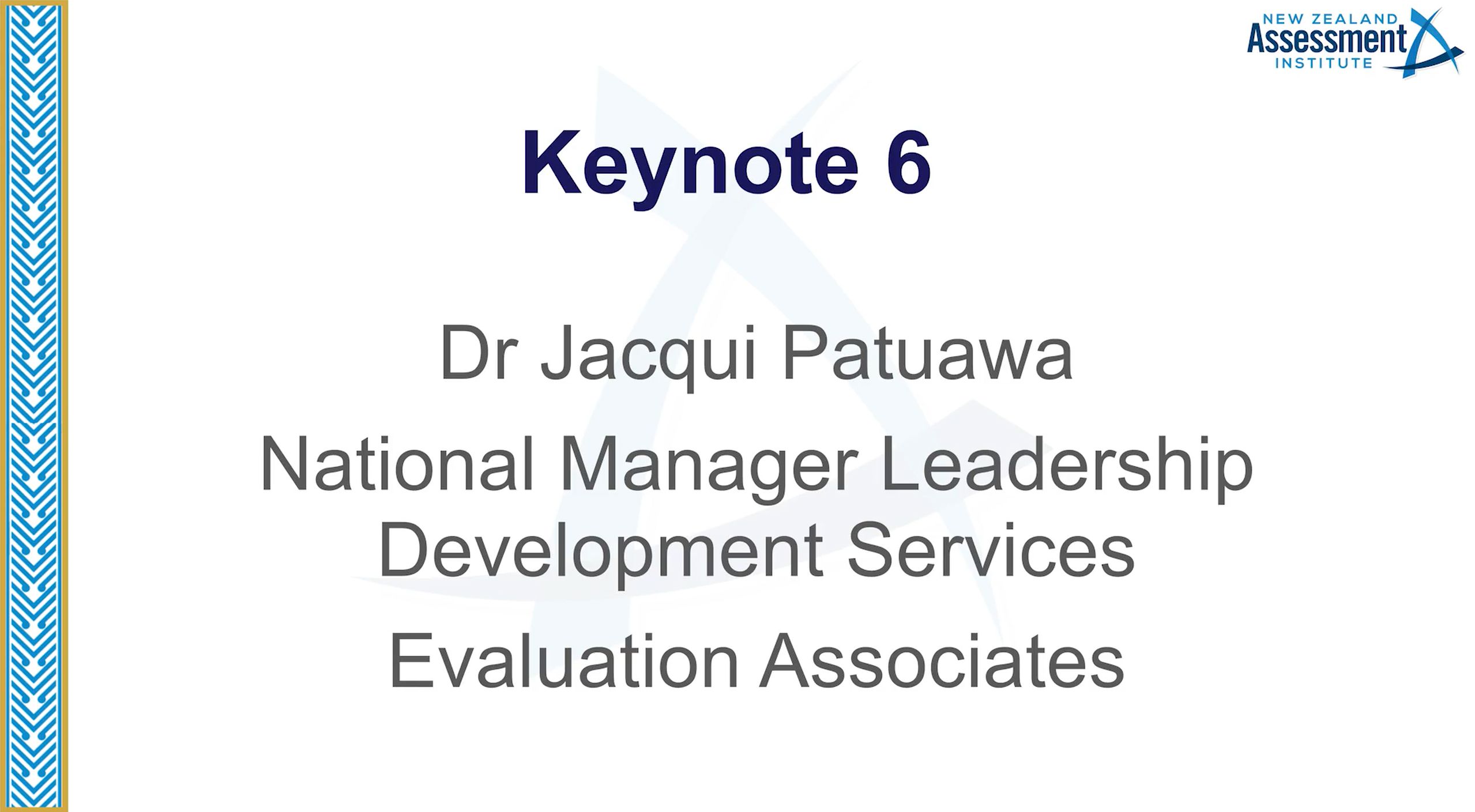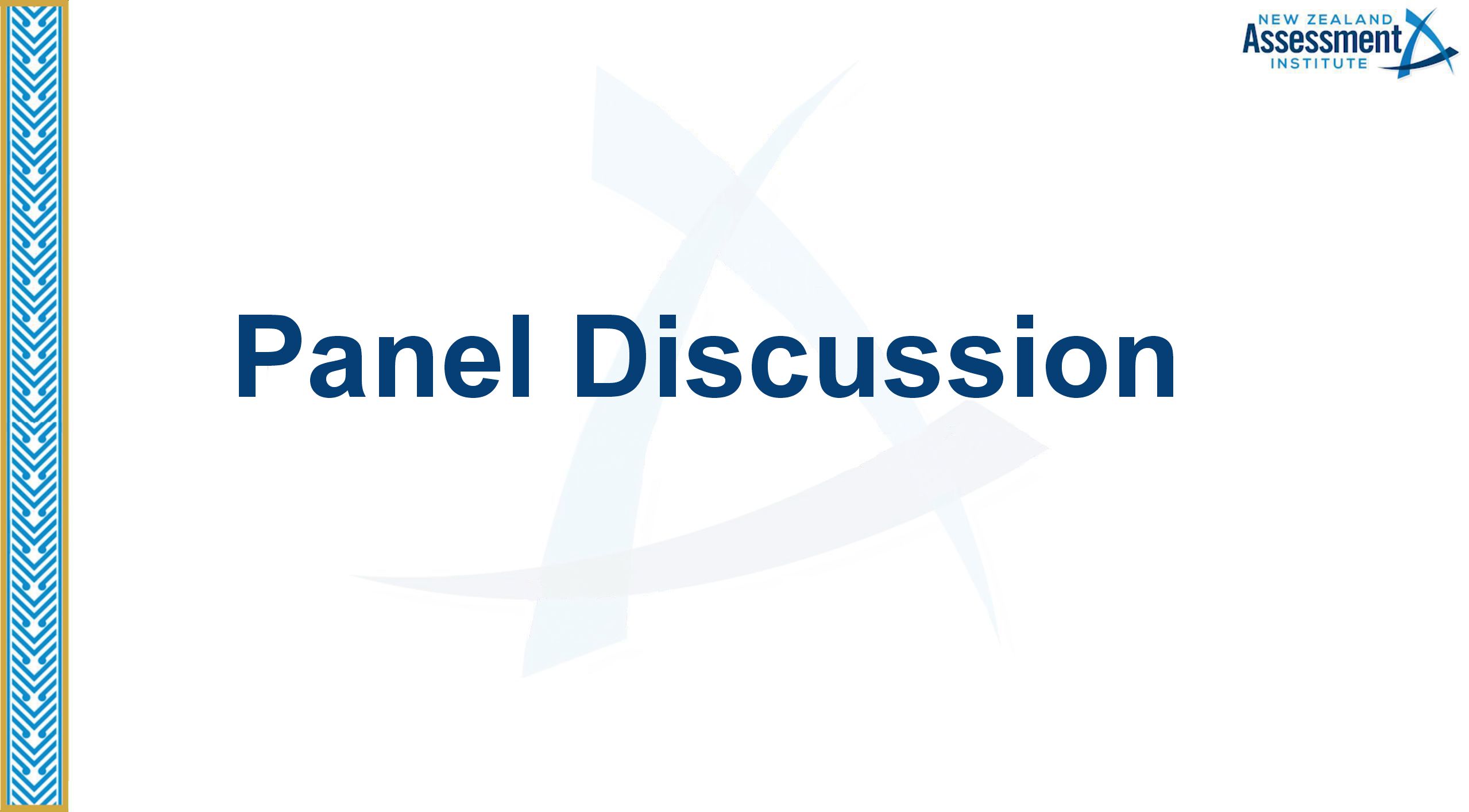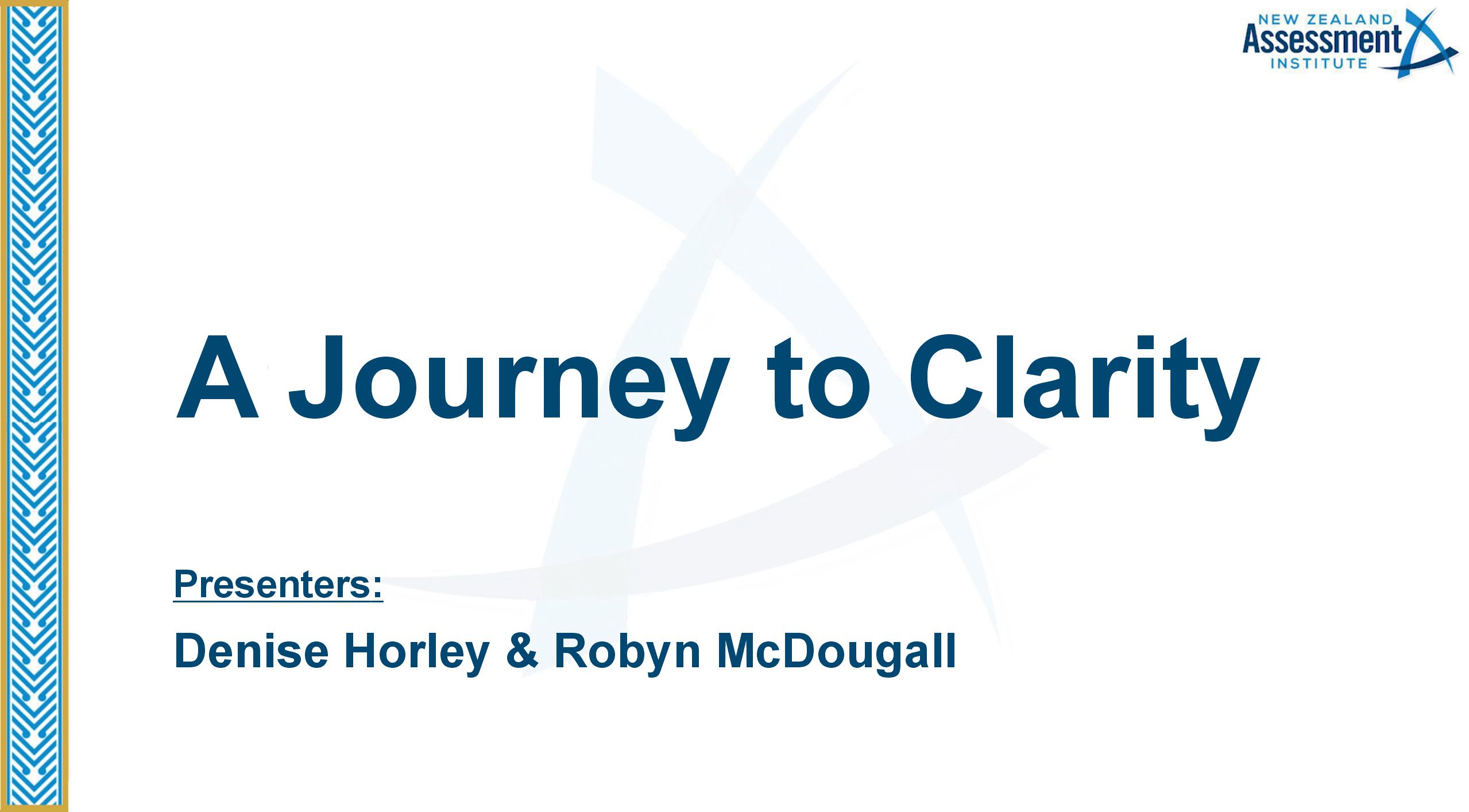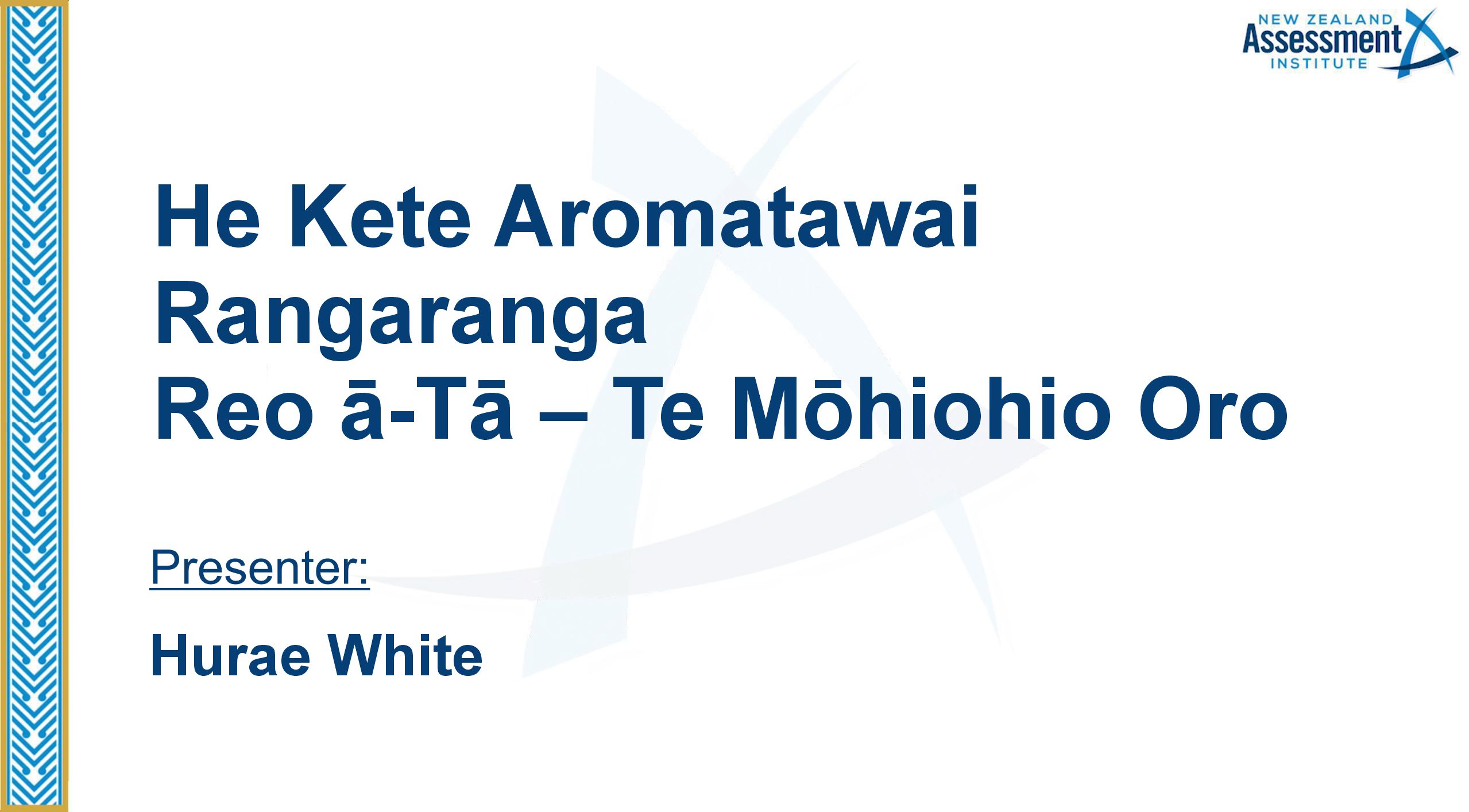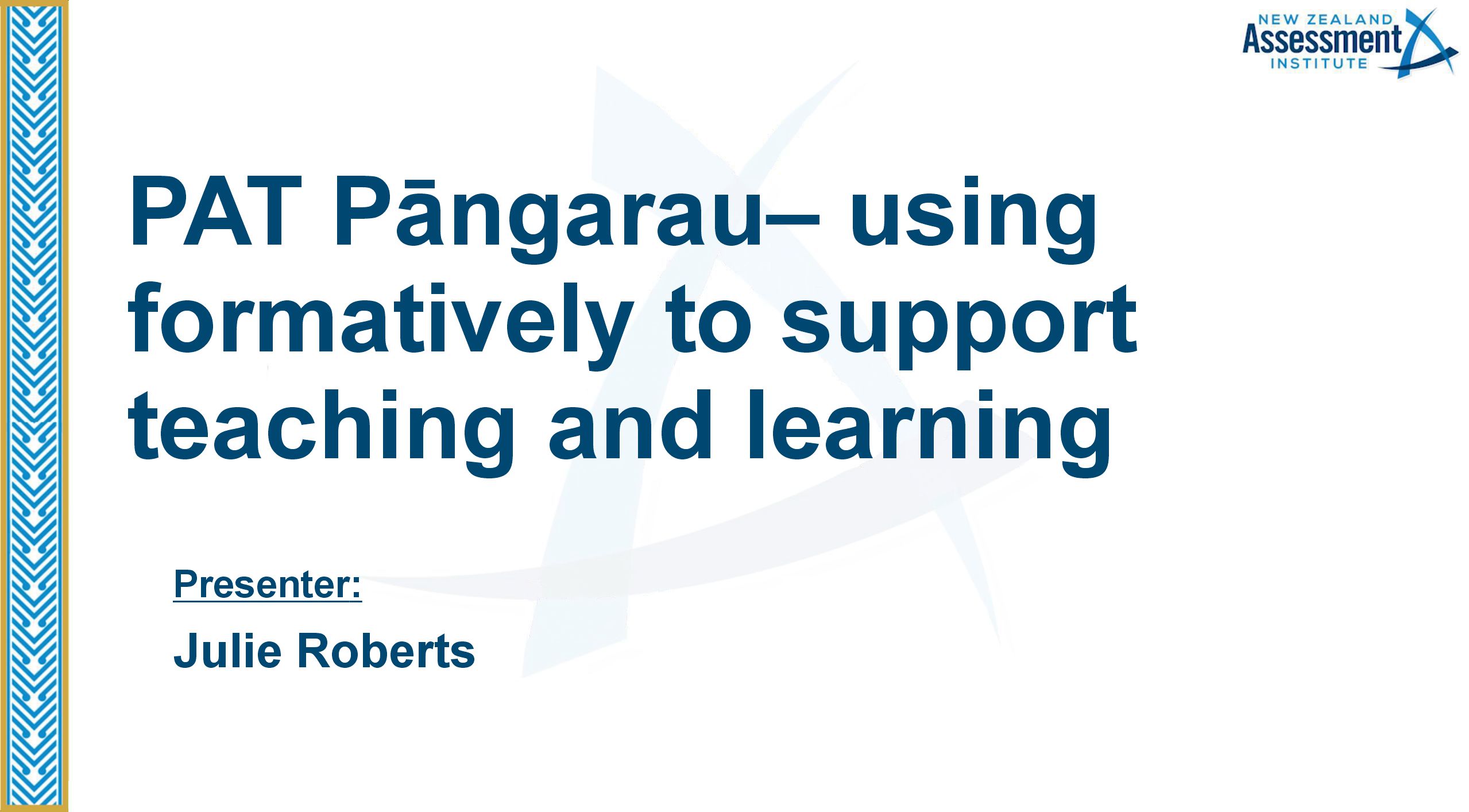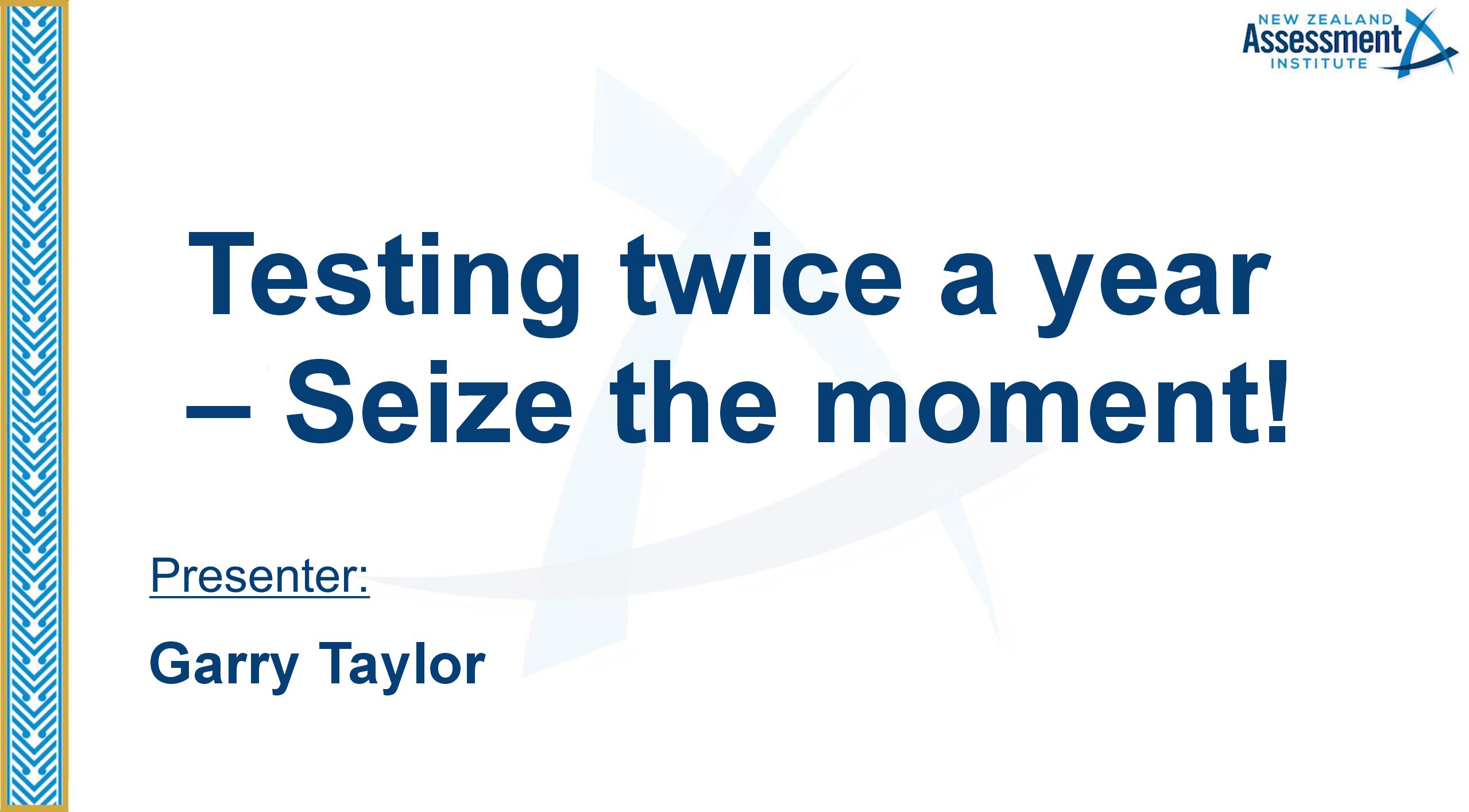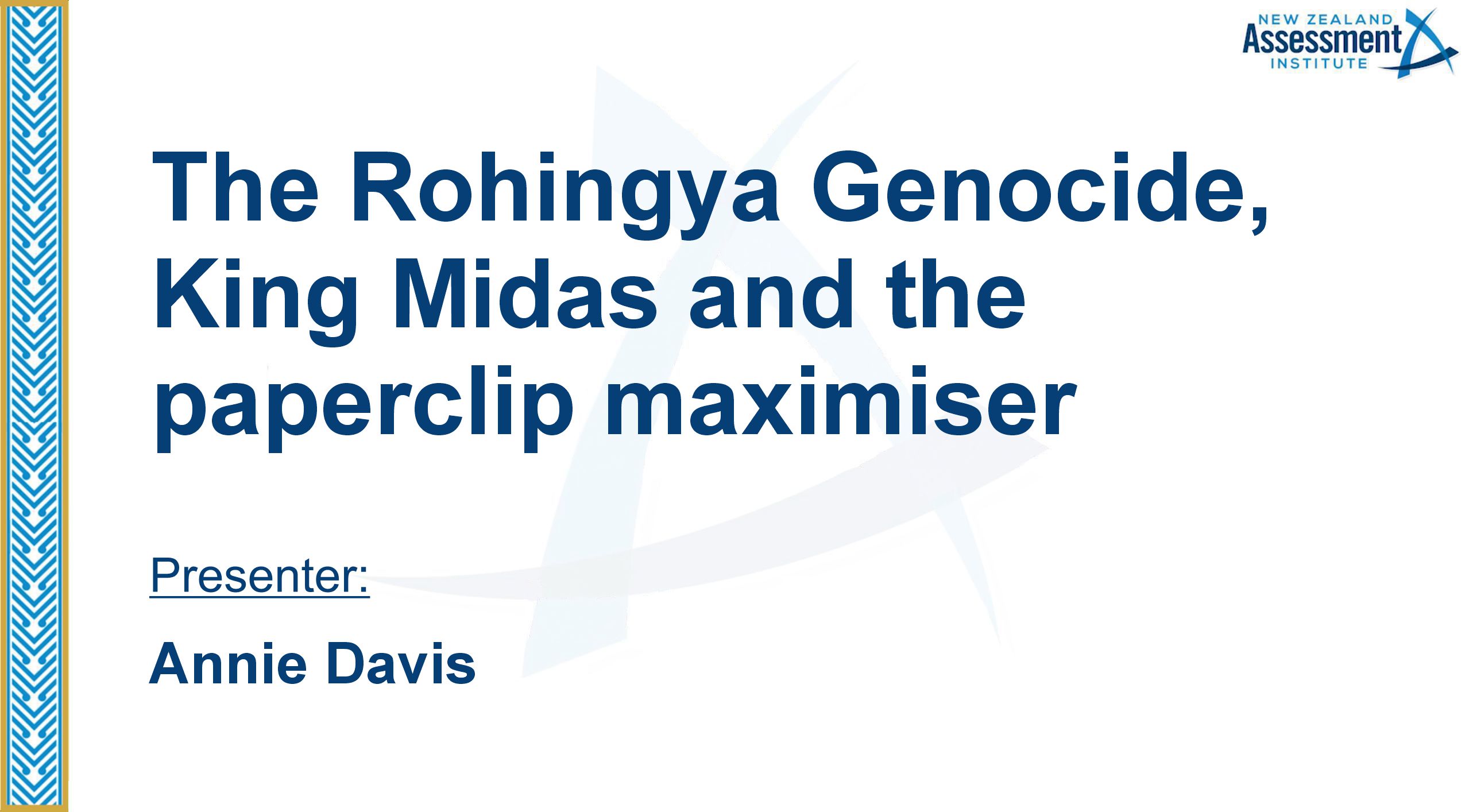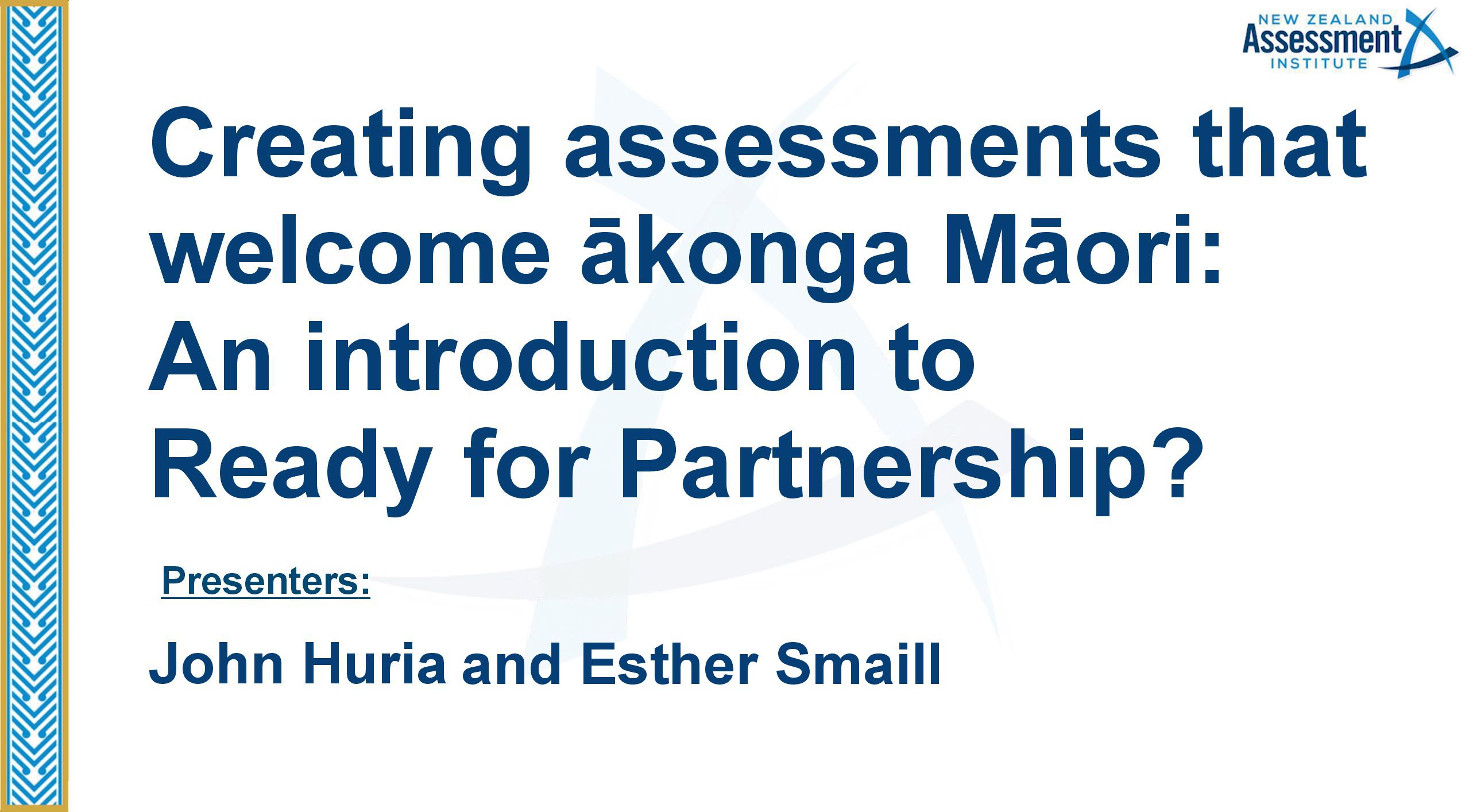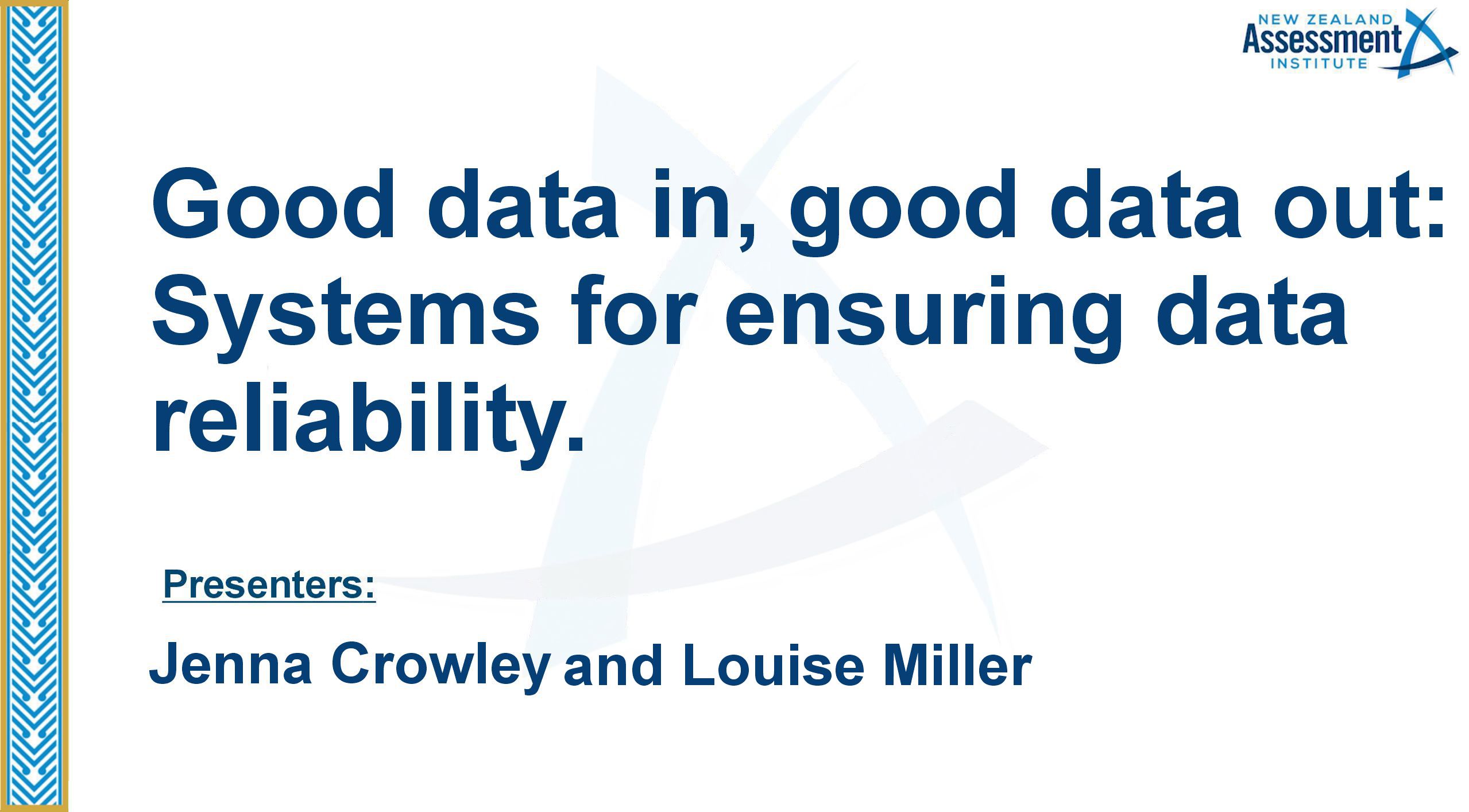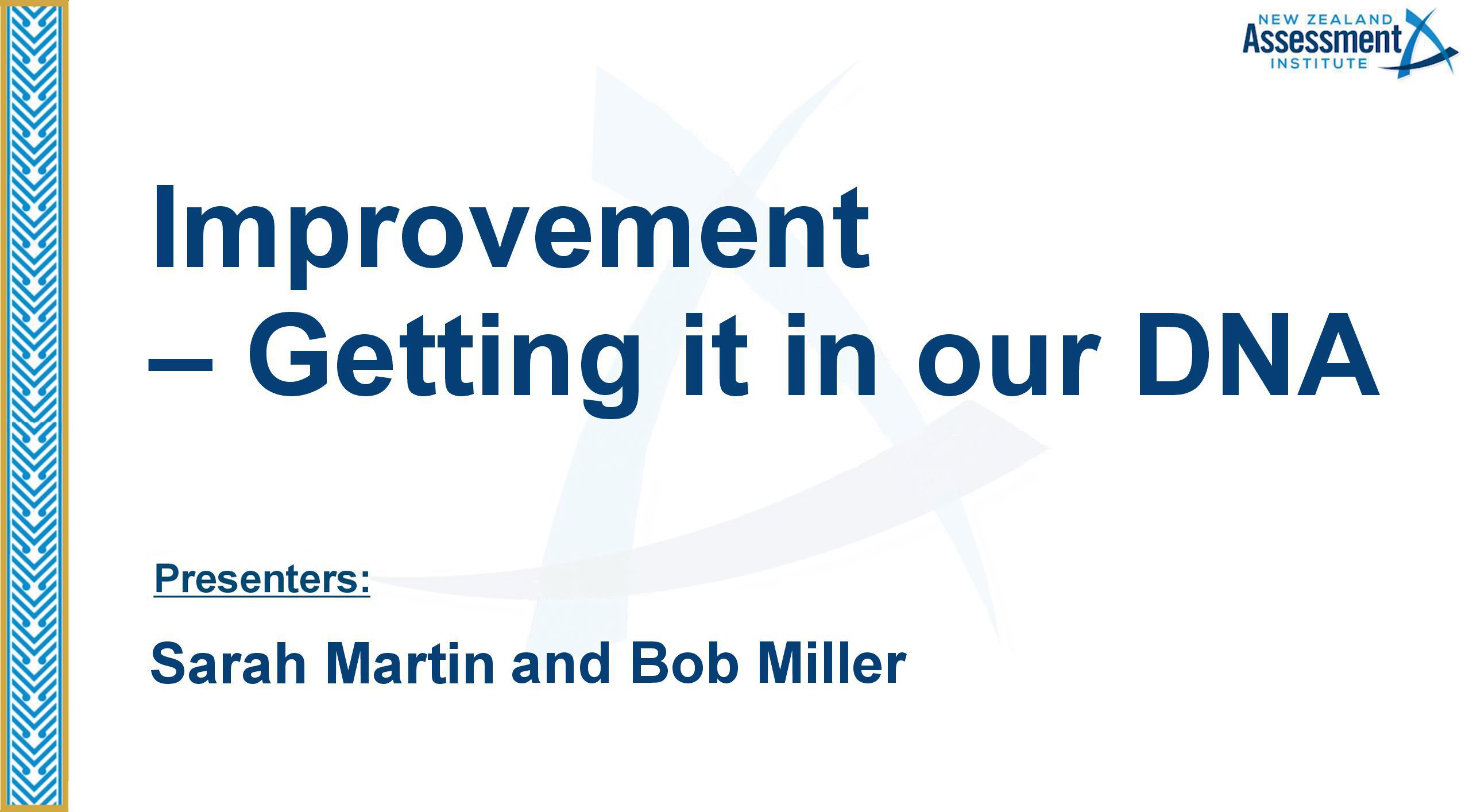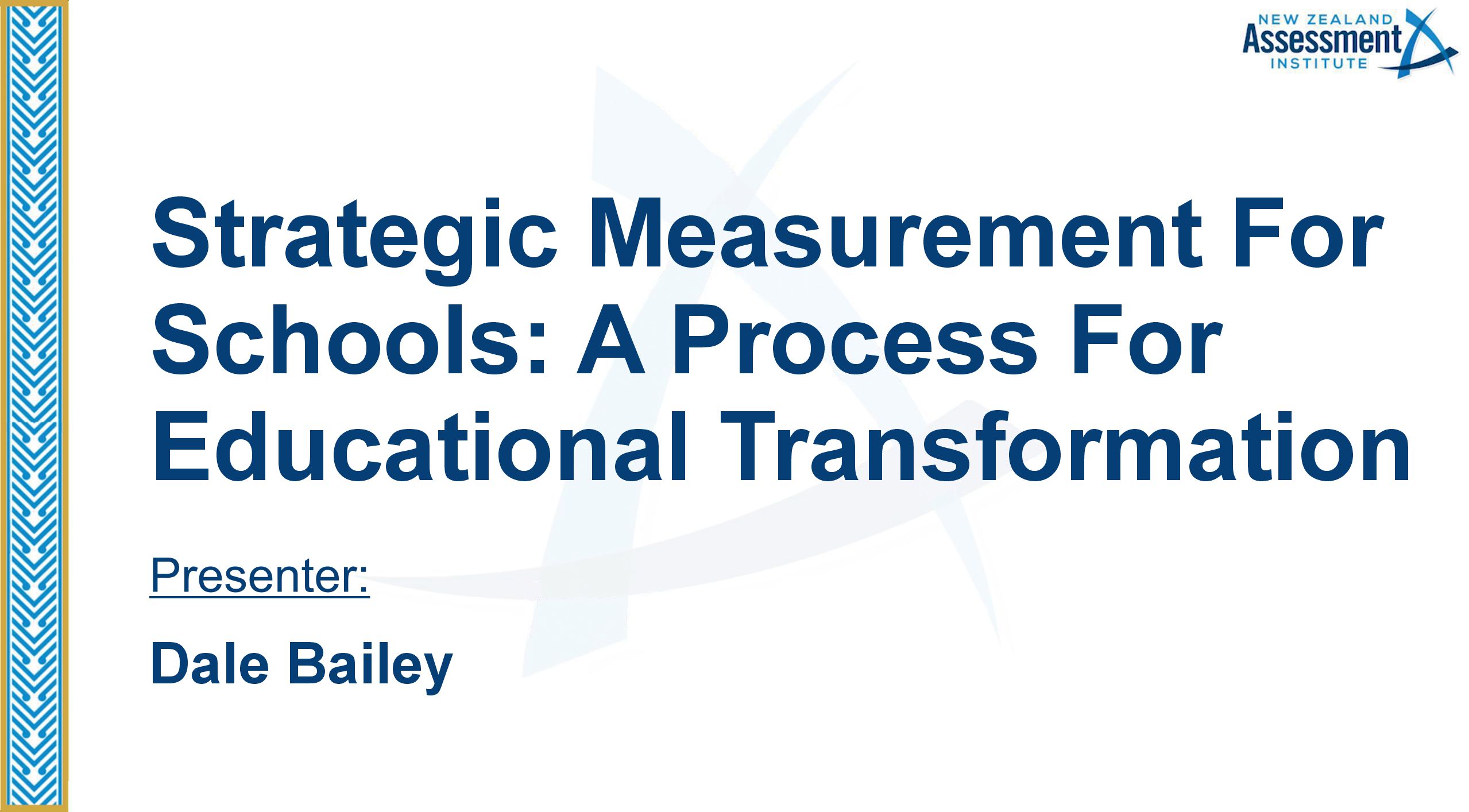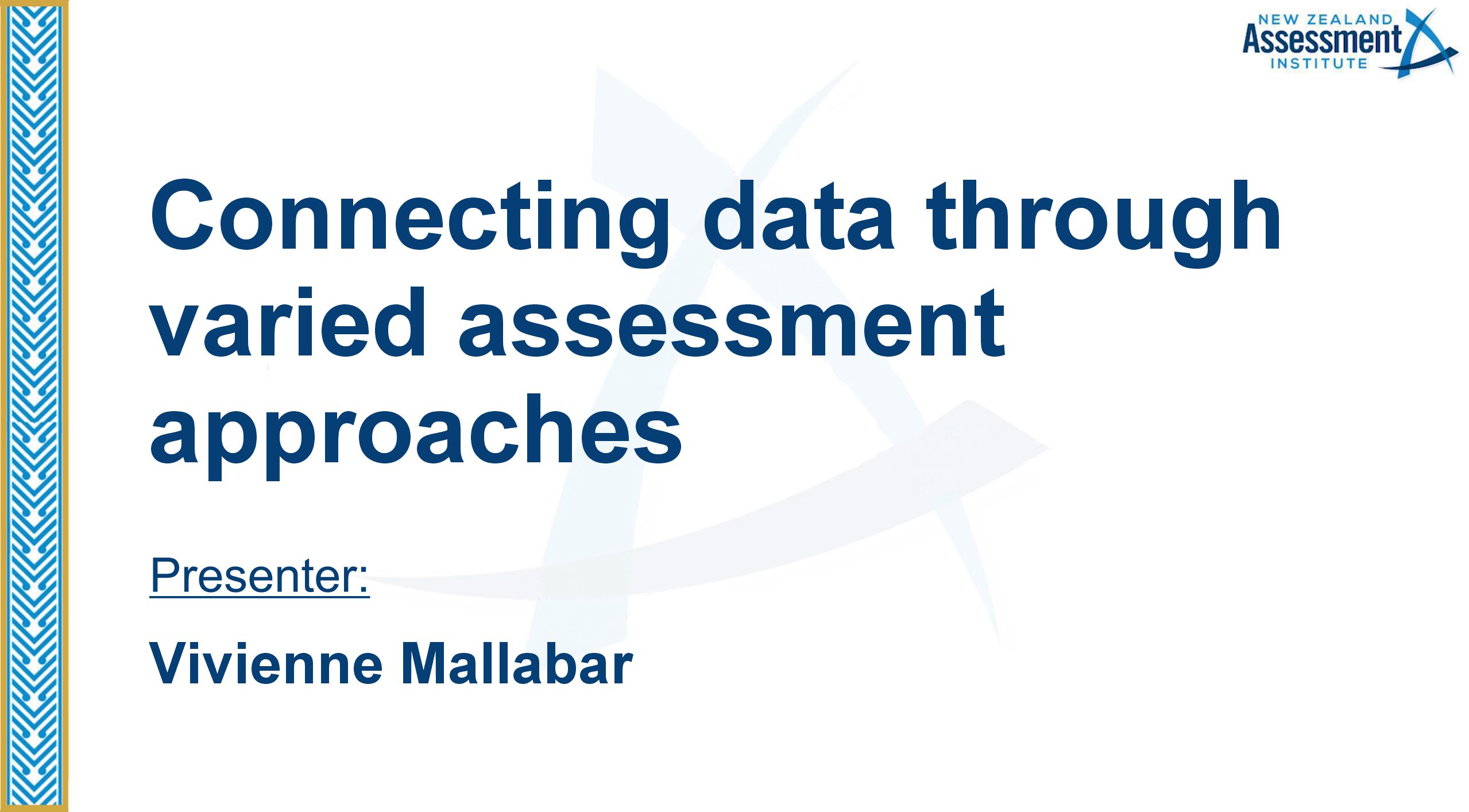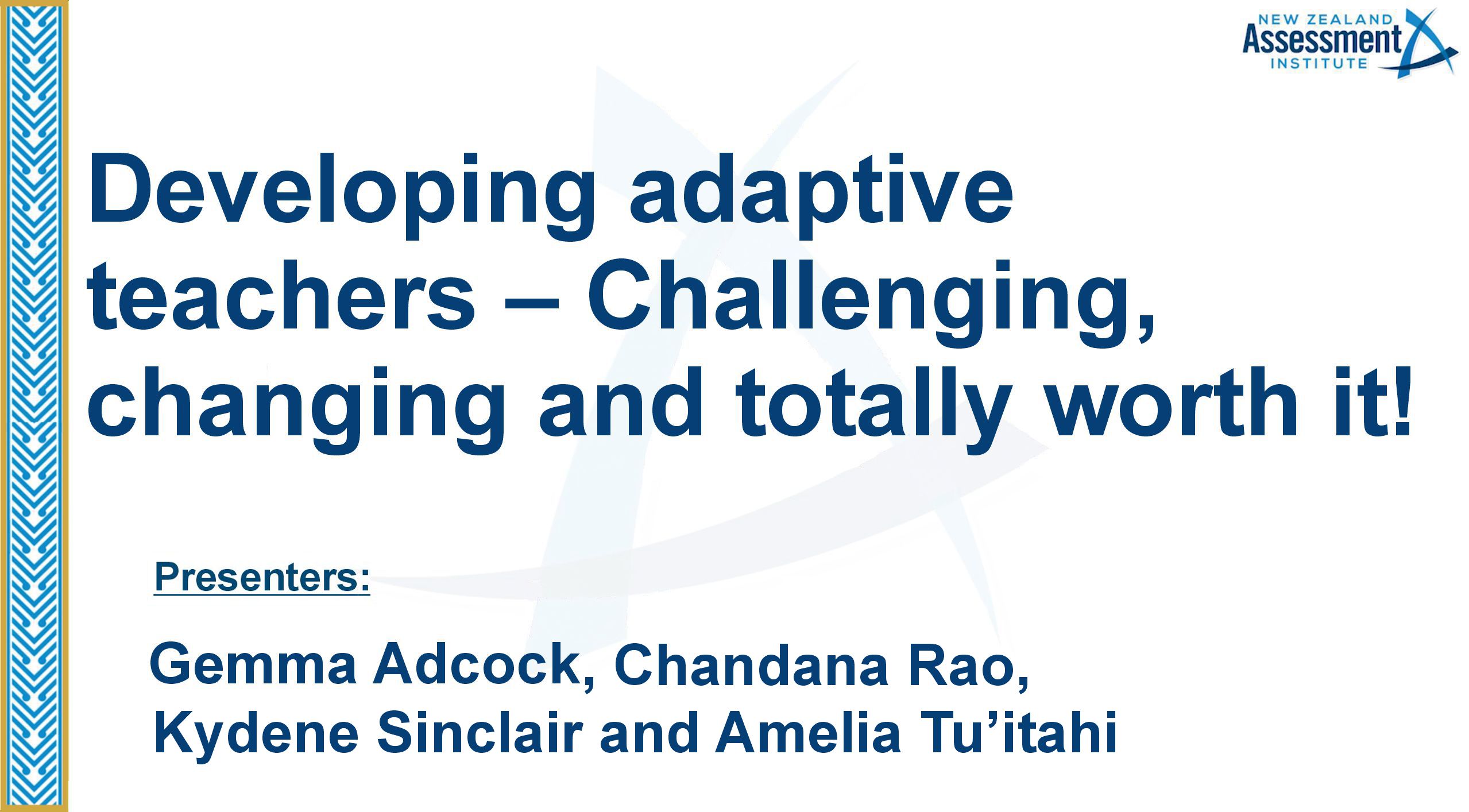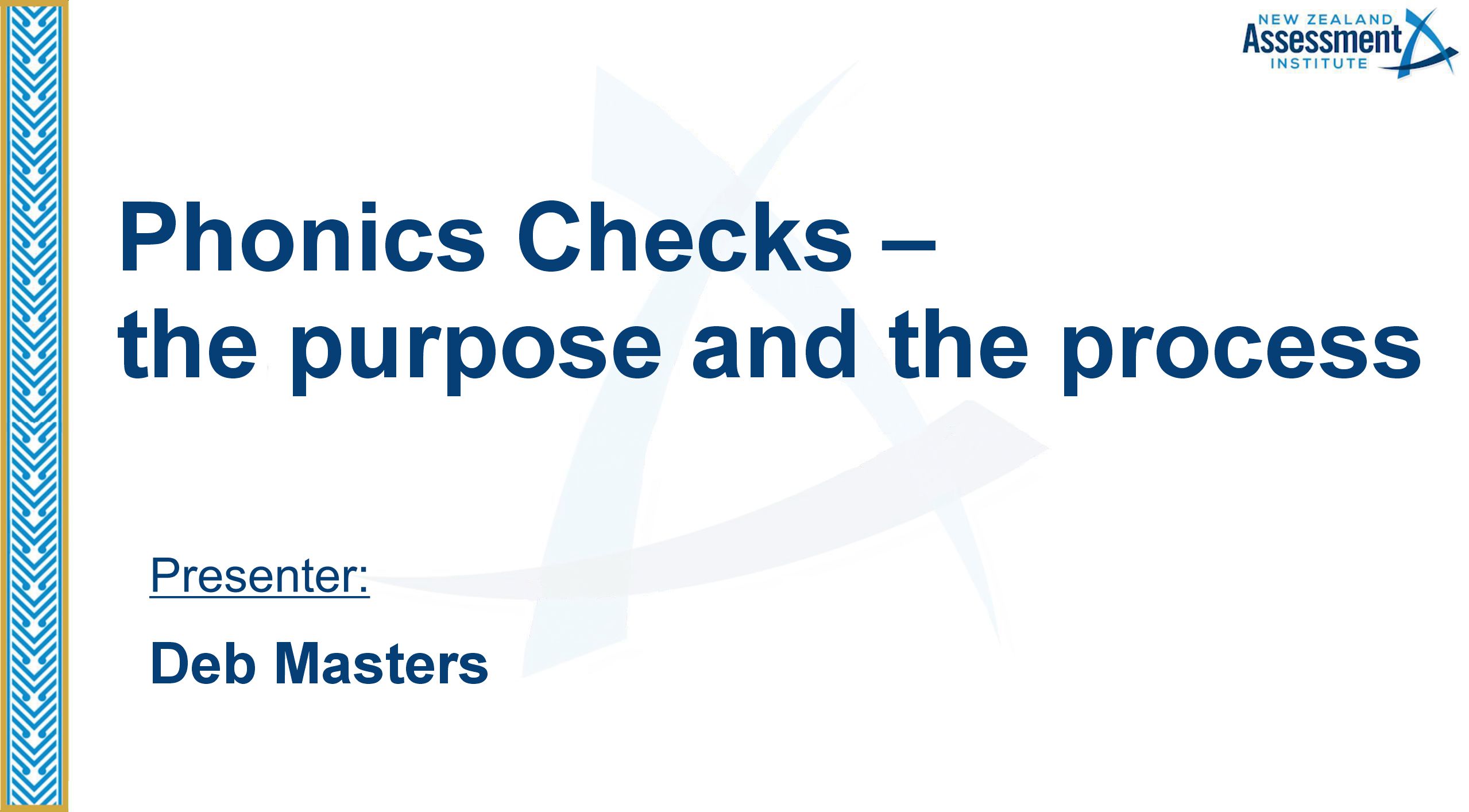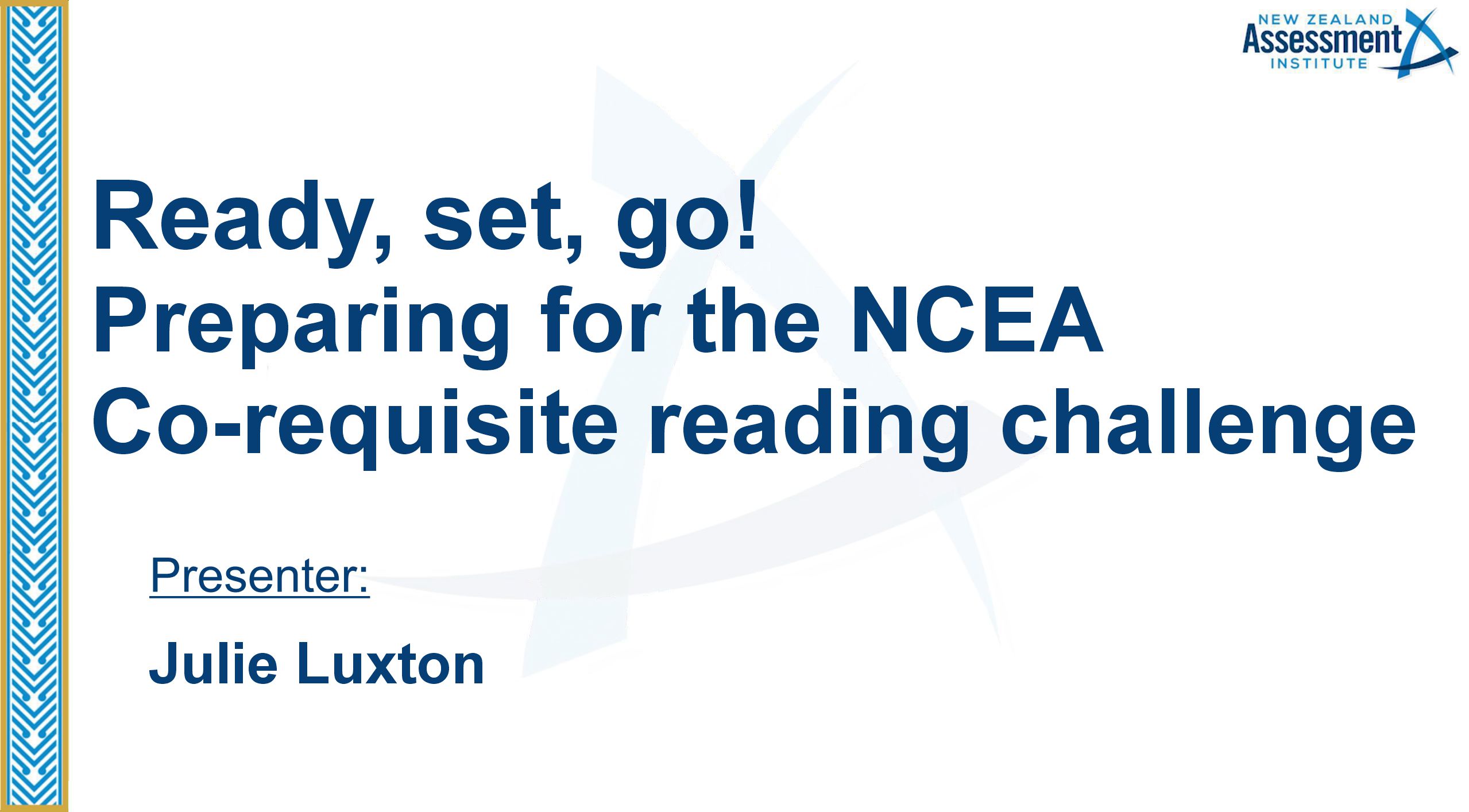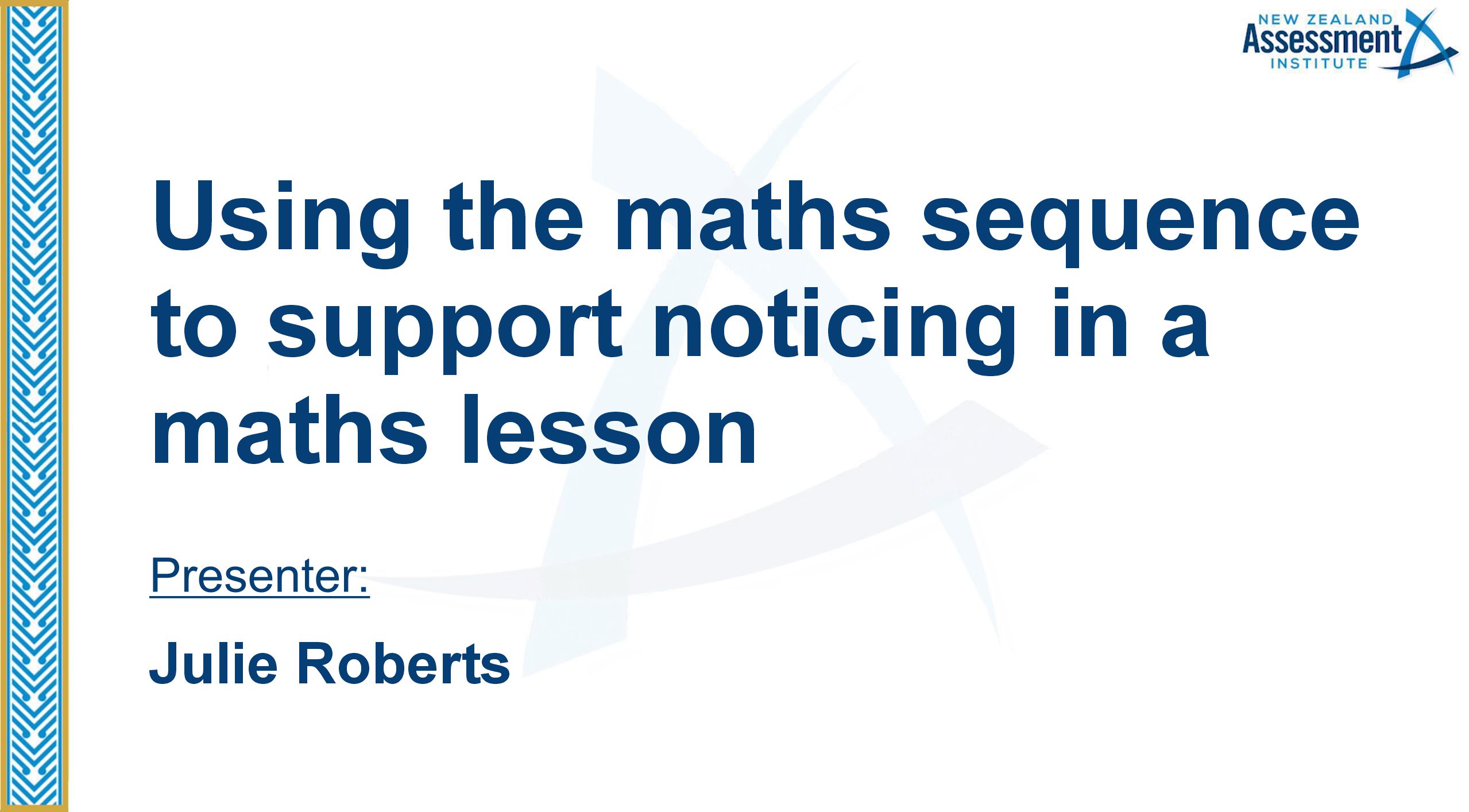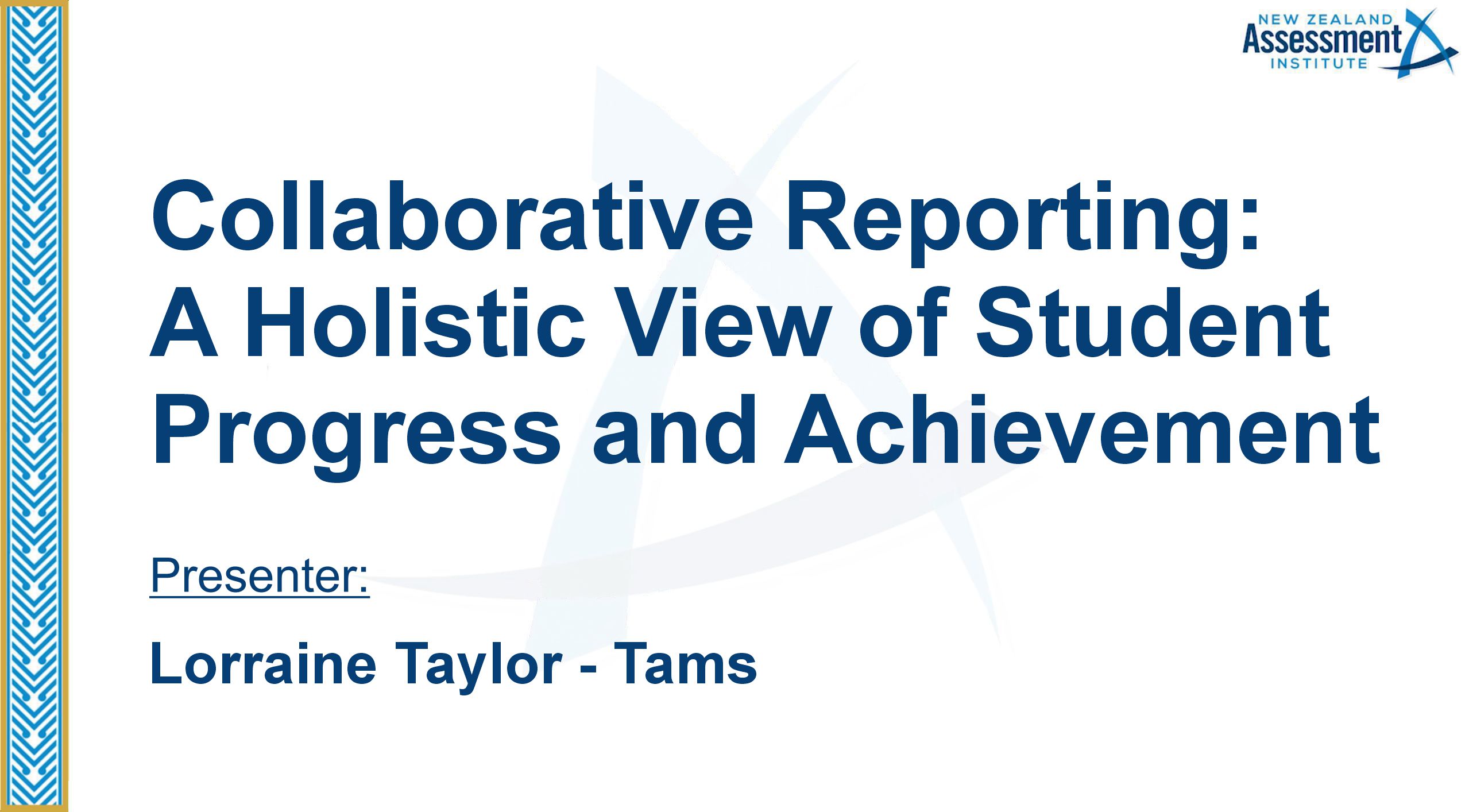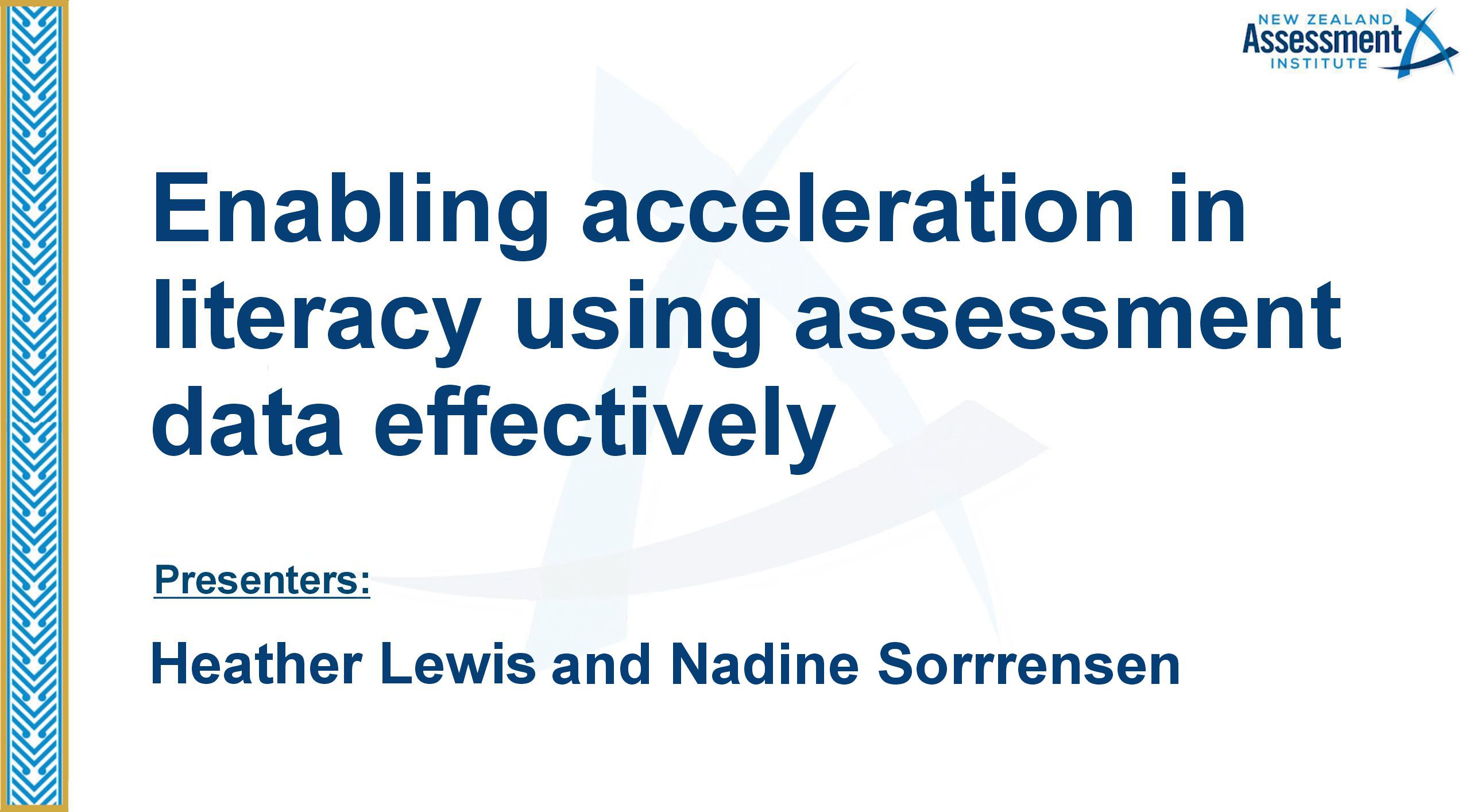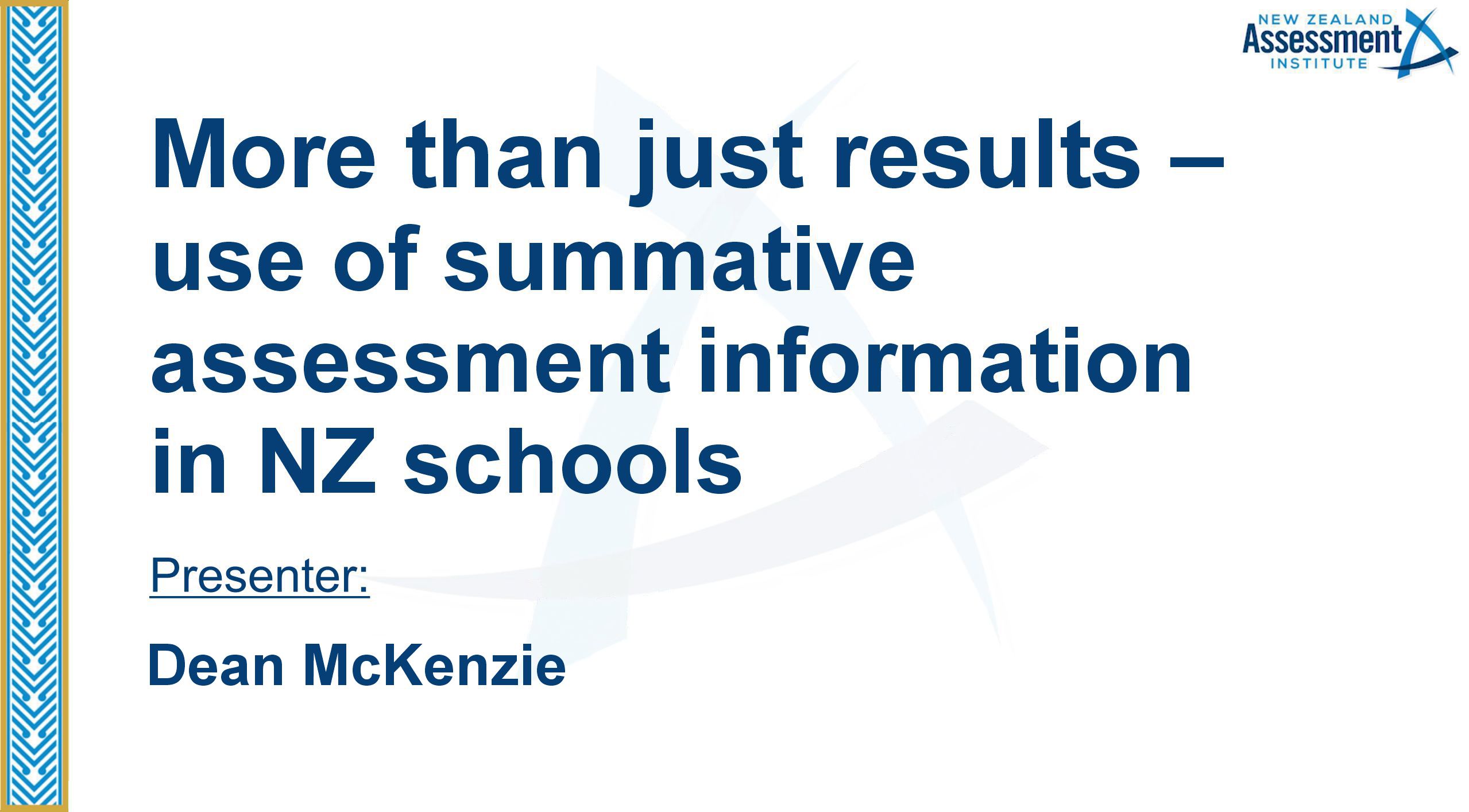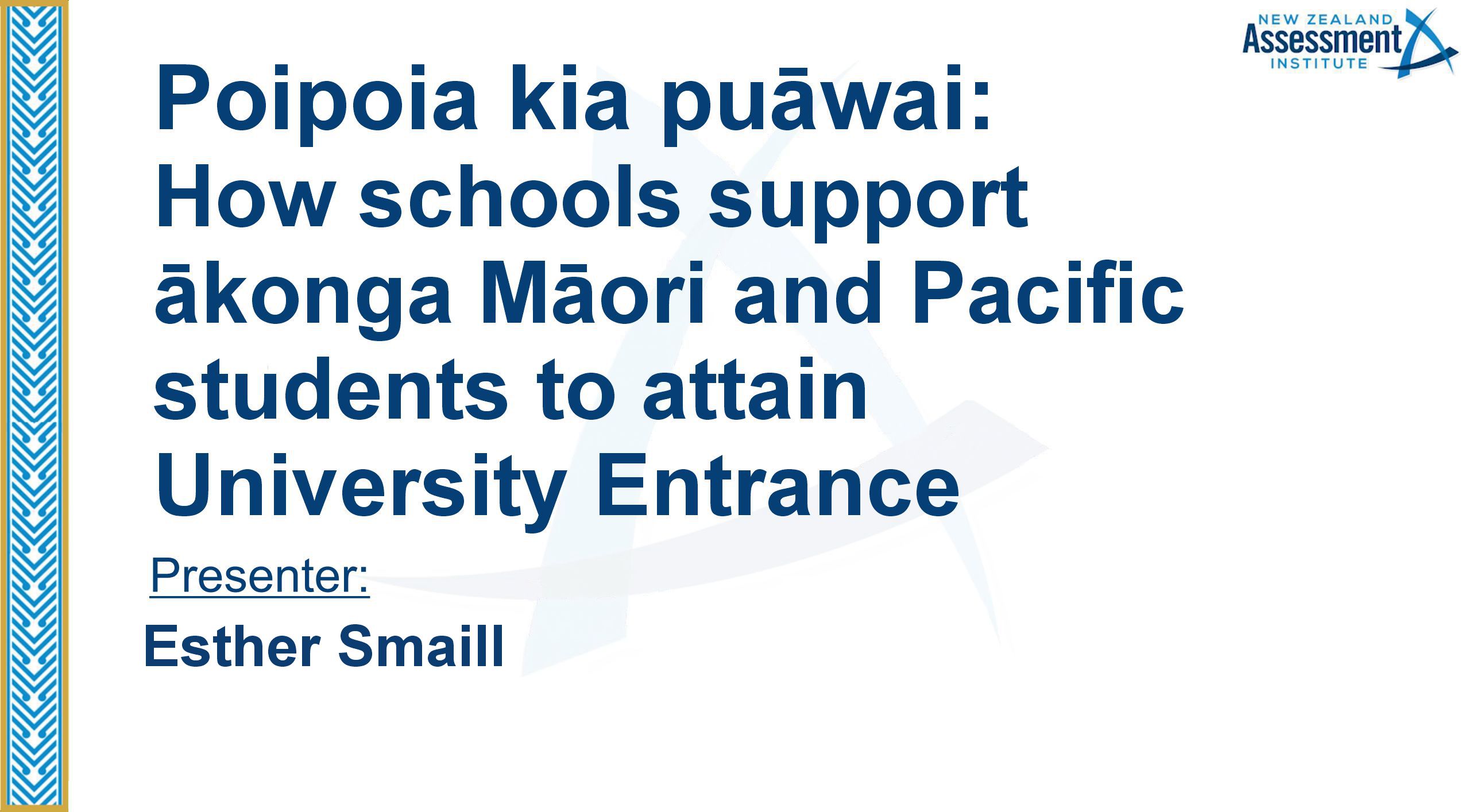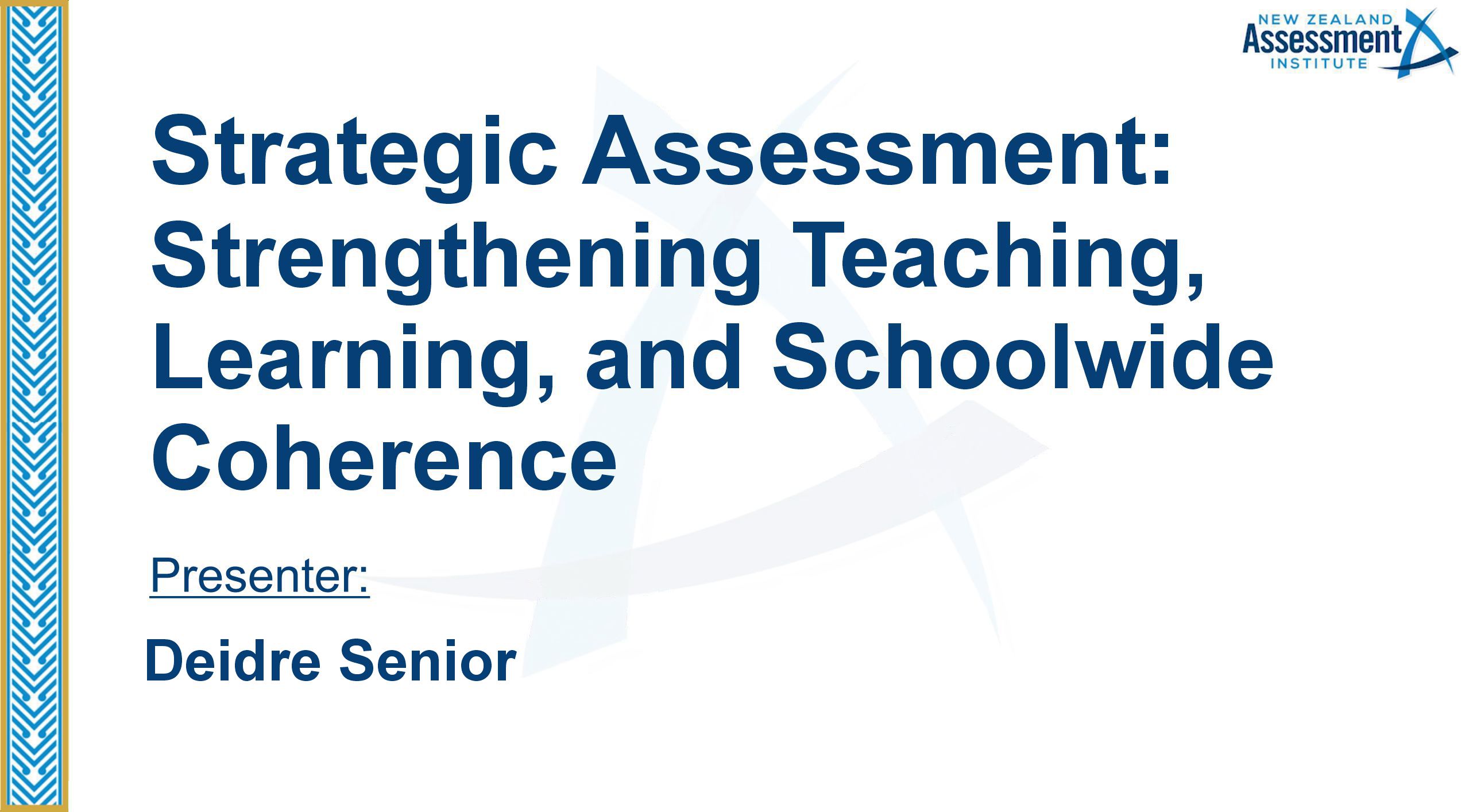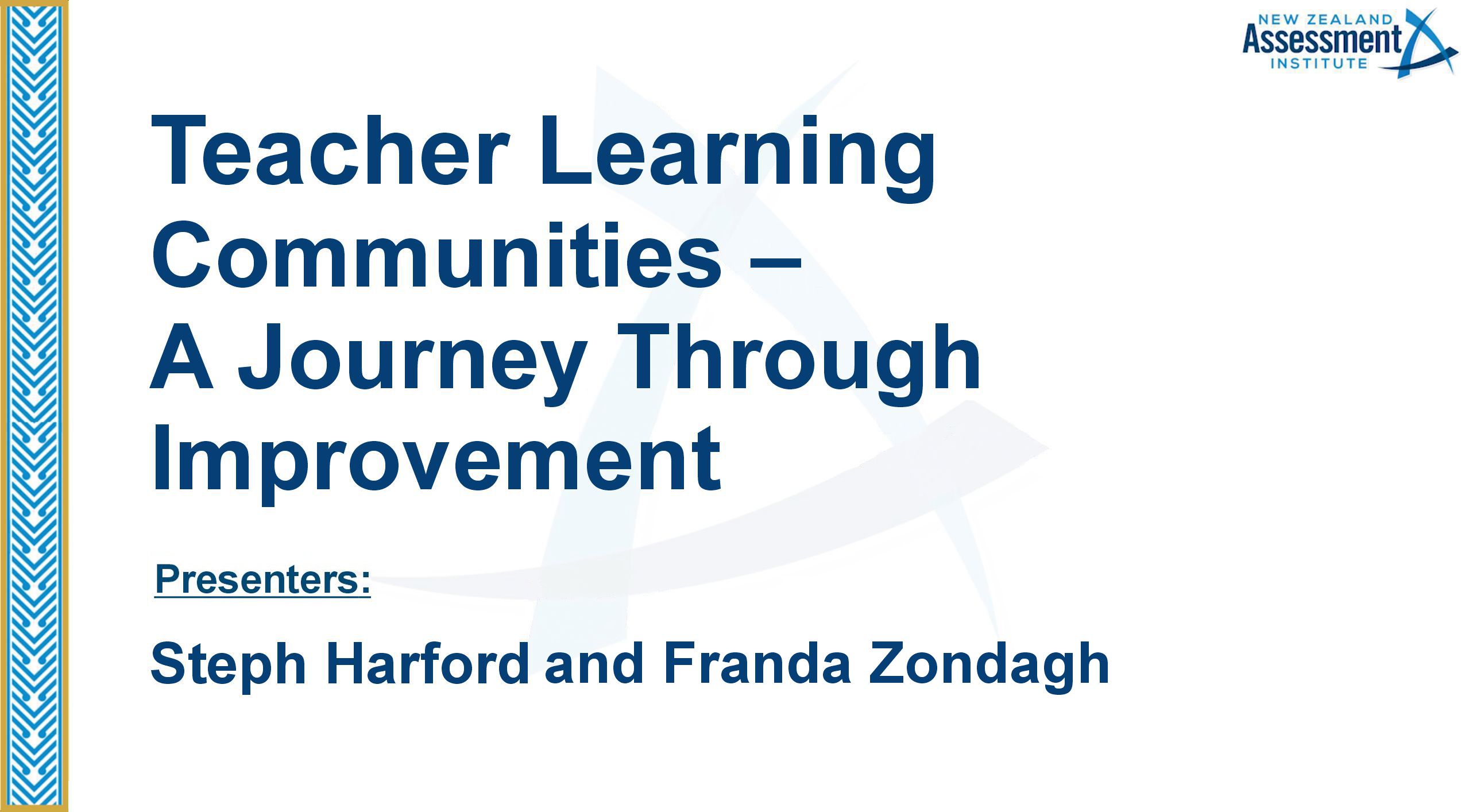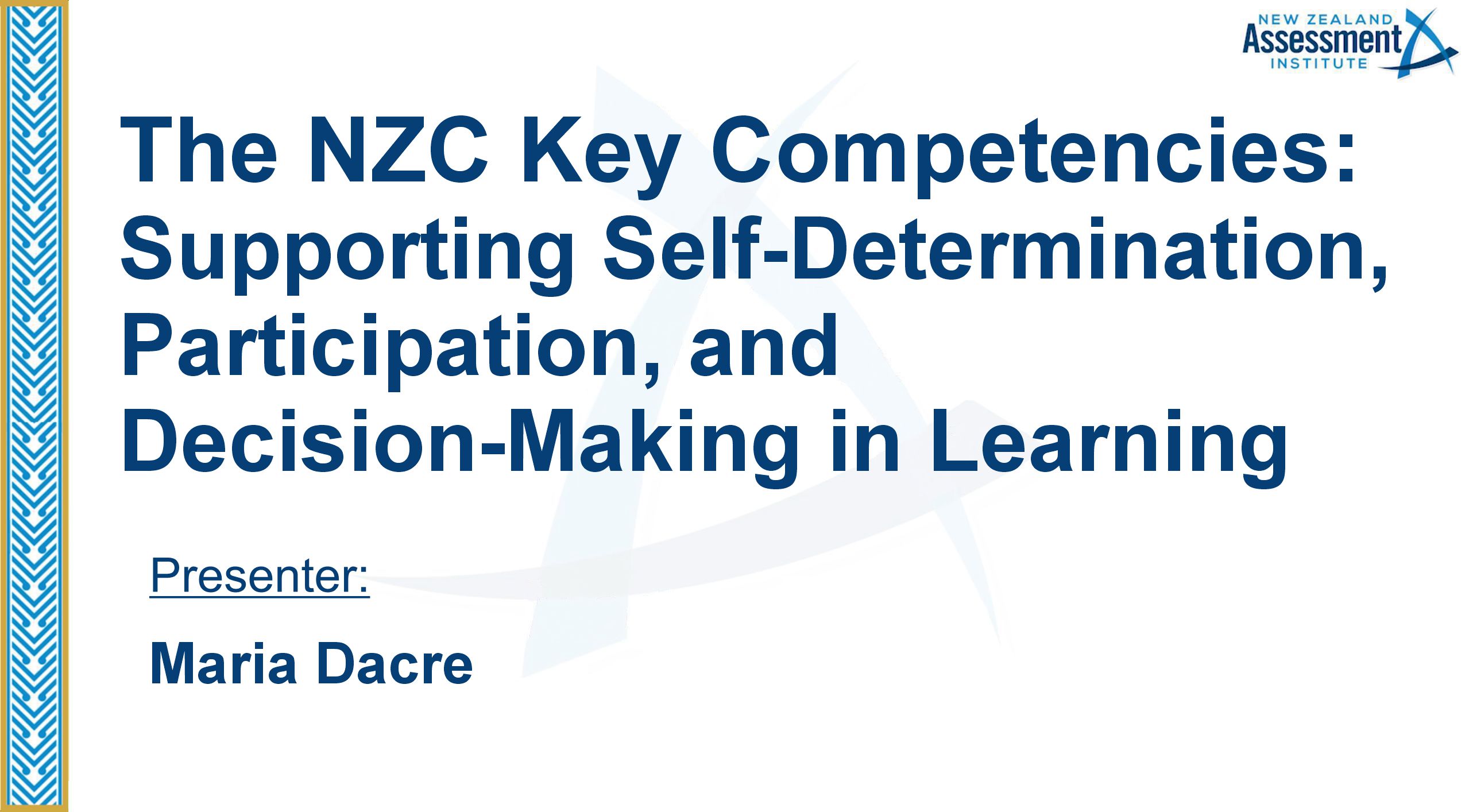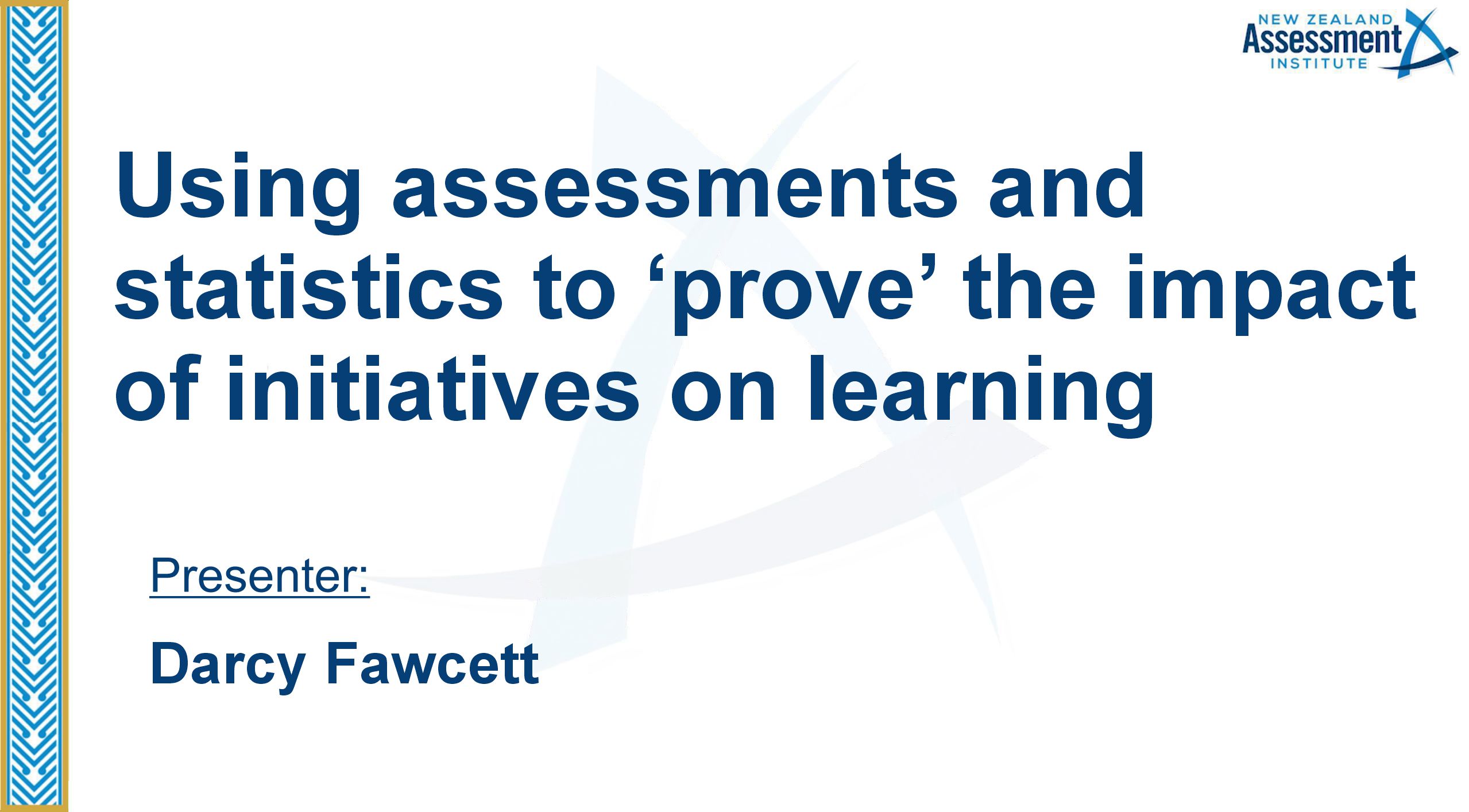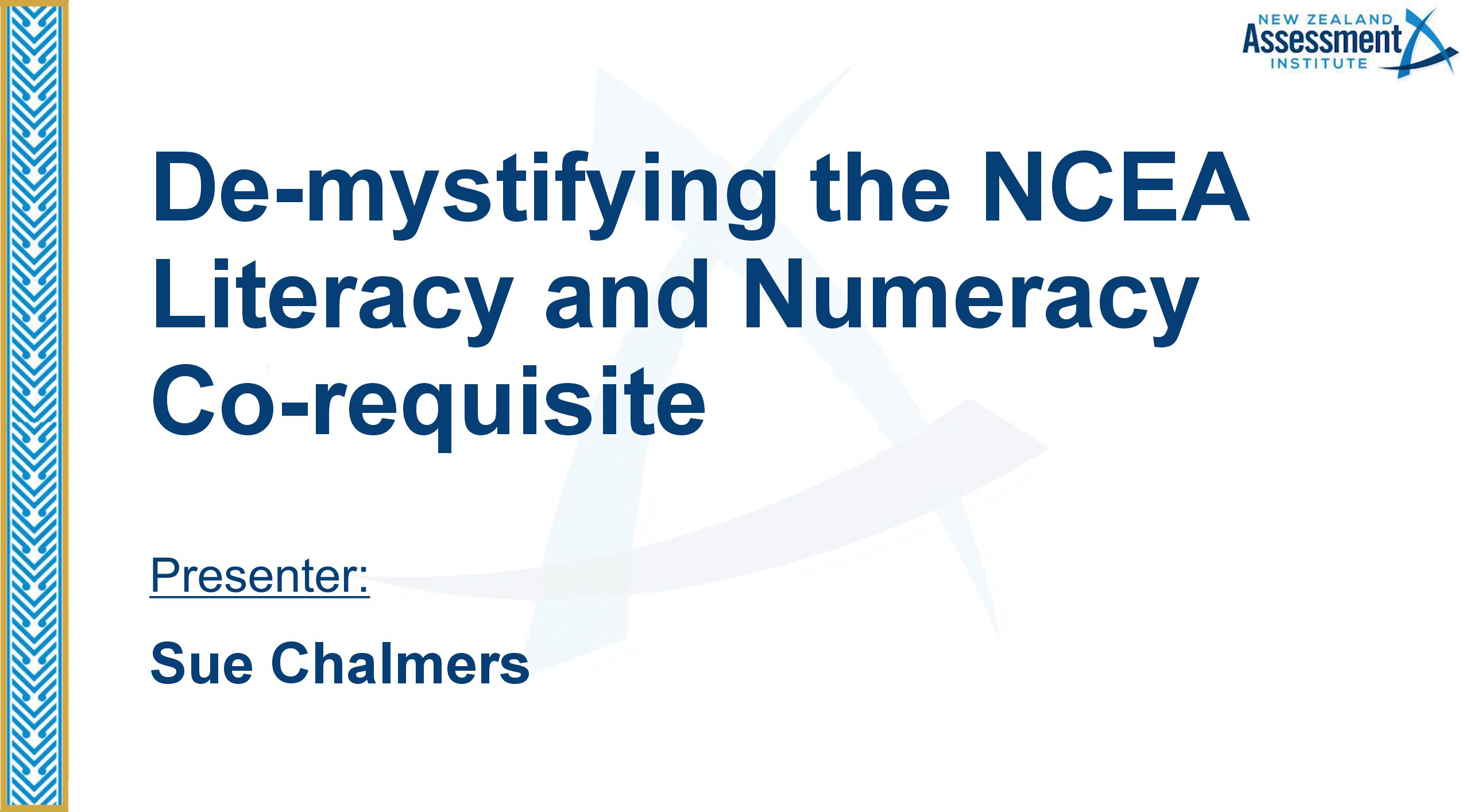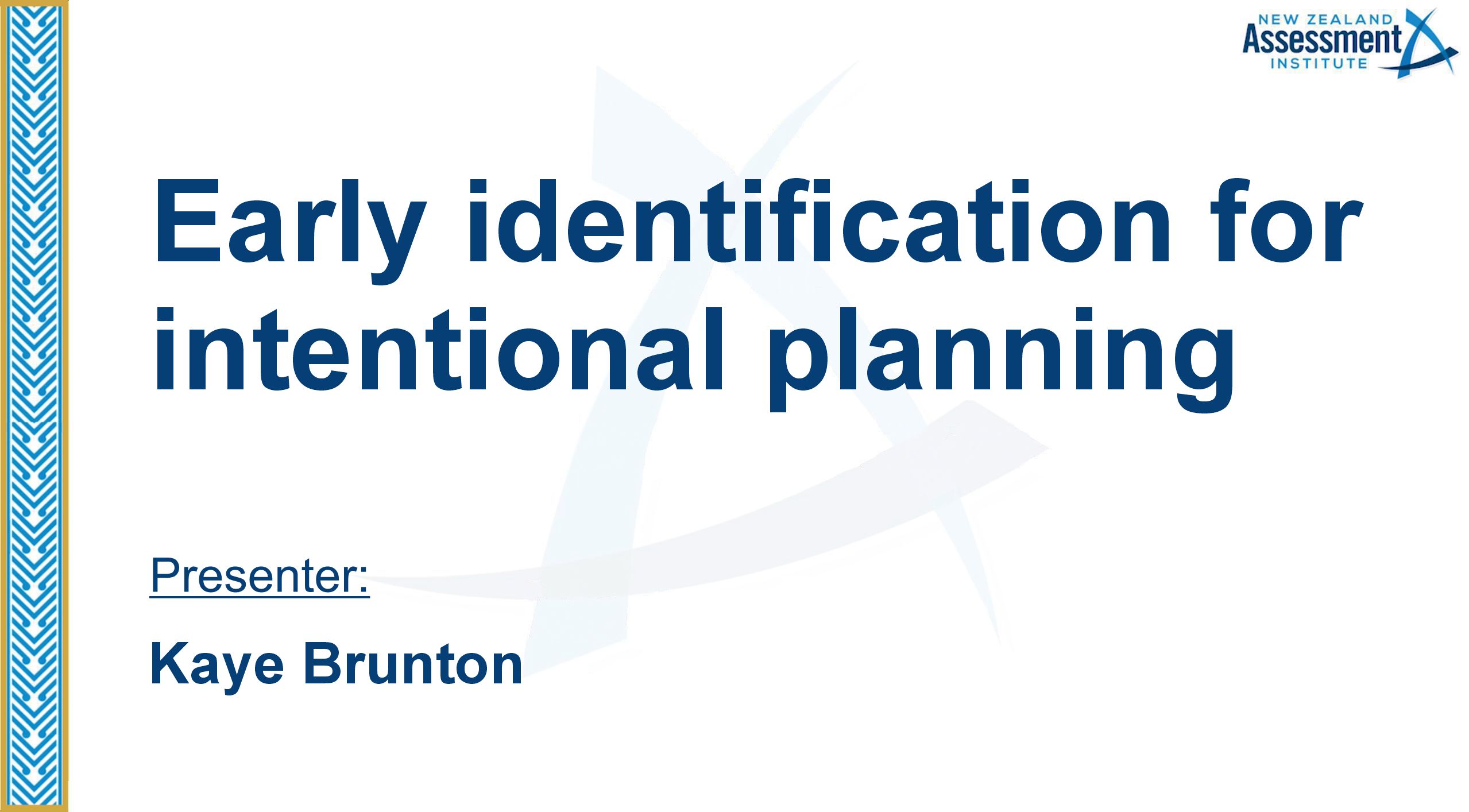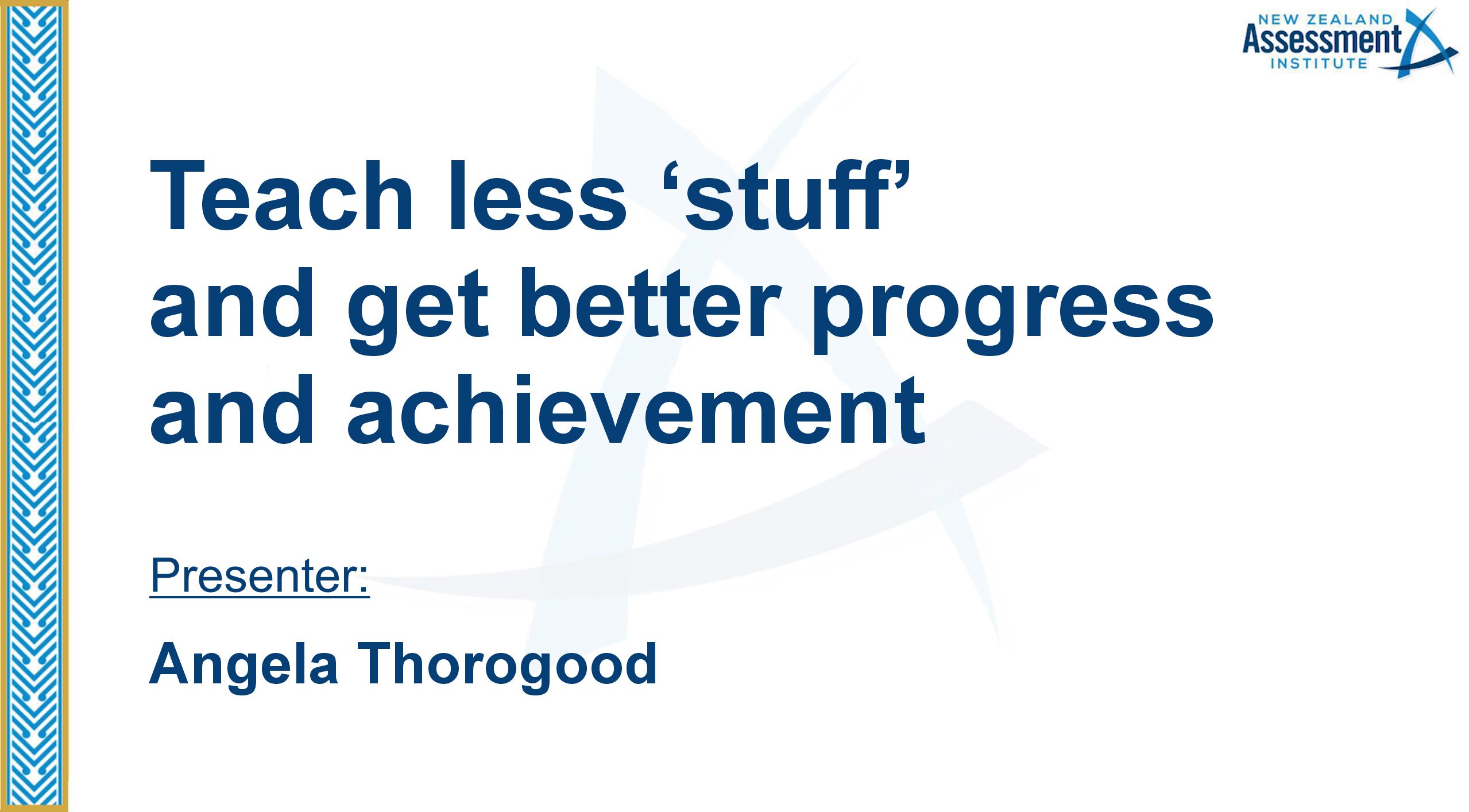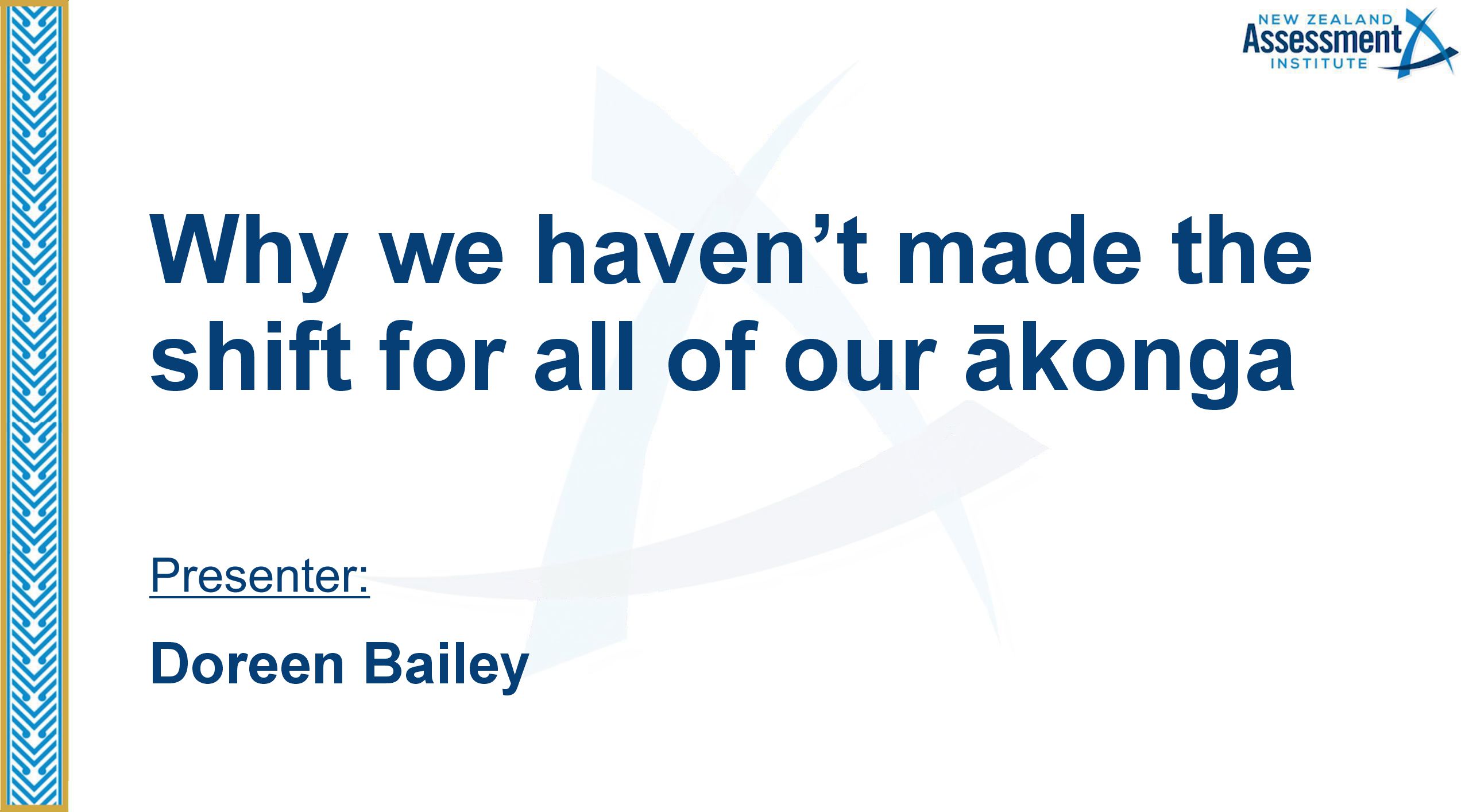National Conference Presentations 2025
The video presentations from our 2025 Assessment Conference are live!
Scroll down for the video presentations from our annual National Assessment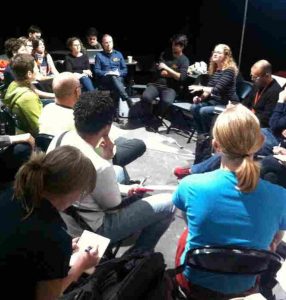 Conference in April 2025. The conference theme this year was:
Conference in April 2025. The conference theme this year was:
Using Assessment for better, smarter, faster learning
For the first time our conference was held face-to-face over two days. The recordings you are accessing here were all filmed live. The six keynote addresses and the panel discussion were filmed professionally, worthwhile but expensive, so we were lucky enough to engage the services of Ormiston Junior College film club, Year 7-10 students, to video the workshops as part of their learning and development in videography. If the quality of the recordings is not quite up to professional standard, we ask you to be understanding and applaud the students for their time and effort.
Amost all of the presentations from the 2025 conference can be found here, with keynote addresses first and workshops in the same order as they happened over the two days. Scroll through on this page to choose the workshops you want to watch or you can filter through the ‘Category’ drop down menu in the top left hand corner.
Slides used in the presentations are included where they are available. Click into the title of the workshop you choose and you’ll find the slides at the bottom of the workshop description on the next page.
Watch and enjoy at your leisure.
To refresh the table back to its original order click here
Title Summary Category hf:doc_tags The Right Honourable Erica Stanford is the current Minister of Education in the National Government. In this keynote address she speaks of what is being done at the system level to achieve our common goal of raising achievement and increasing equity. She signals a multi-faceted approach to system change: curriculum, pedagogy, assessment, creating the workforce of the future, learning support, data and evidence. The emphasis is on the levers of long-term change. She speaks about the resources being provided to support teachers with numeracy and literacy and the professional learning and development that is being and will be provided in … curriculum refresh, government policy, keynote address, system change curriculum-refresh government-policy keynote-address system-change This keynote presentation by Nicholas Pole, CEO and Chief Review Officer of the Education Review Office, delves into the multifaceted role of assessment in New Zealand schools. It emphasises its critical importance in strategic planning and school improvement. Drawing on recent experiences and findings from the Education Review Office (ERO), the presentation provides valuable insights into how assessment is currently being utilised to inform decision-making at every level within schools. It explores the extent to which assessment is used to identify student learning needs and support intervention decisions, inform teaching practices, and guide resourcing decisions and priority setting by school … assessment and reporting, evaluation, key drivers, keynote address, policy assessment-and-reporting evaluation key-drivers keynote-address policy Arihia Stirling QSM is the long-standing Principal of Te Kura Māori o Ngā Tapuwae in Māngere East, a Māori immersion school she has led with distinction for over 26 years. Her keynote address challenges researchers, policymakers, and community leaders to centre authenticity in their work – ensuring that Māori and Pacific voices are not just heard, but upheld. Too often, stories are watered down, generalised, or reshaped to fit a specific narrative. In her kōrero, she explores what it means to maintain integrity in research, reflect real-life experiences, and stay accountable to the communities we serve. Equity starts with truth … cultural capability, equity, keynote address, Māori medium, te ao Māori cultural-capability equity keynote-address maori-medium te-ao-maori In this keynote address, Michael De’Ath presents insider and outsider perspectives on the strengths and challenges in the NZ education system. He speaks of the responsibility of government and systems to better support schools, and offers the case for change. He emphasises the potential of education to transform New Zealand’s economic, cultural and social future and to make the role of educators more exciting, purposeful, and valued. Michael De’Ath, Managing Director of MD Advisory and former Director General of Education in Queensland, has a track record of changing systems by using data and evidence to support people to improve outcomes. … drivers of change, government policy, keynote address drivers-of-change government-policy keynote-address Te piko o te mahuri, tērā te tipu o te rākau The way in which we define success, monitor achievement and make judgments about our mokopuna impact on who they become. The whakataukī “Te piko o te mahuri, tērā te tipu o te rākau” – the way in which the young sapling is nurtured, determines how the tree will grow – captures this sentiment. In her address, Hineihaea Murphy, Managing Director of Haemata Associates, draws on her experience in working in the Māori-medium curriculum and assessment context for over 30 years, to discuss how and why we need to be … aromatawai, equity, holistic assessment, keynote address, te ao Māori aromatawai equity holistic-assessment keynote-address te-ao-maori In this keynote address Dr Jacqui Patuawa speaks about the essentiality of effective leadership in school improvement. Jacqui is the National Manager of Leadership Development Services at Evaluation Associates (EA) in New Zealand. She is the global program lead for Leading by Learning, responsible alongside Distinguished Professor Emeritus Viviane Robinson, for accrediting facilitators worldwide and ensuring program quality. Prior to joining EA, she was the Associate Director of the Centre for Educational Leadership based at the University of Auckland. Jacqui had over 16 years in school leadership positions including as principal in three different schools. Jacqui is passionate about supporting … keynote address, strategic leadership keynote-address strategic-leadership Participants in the panel discussion are Hineihaea Murphy of Haemata Associates, Michael De’Ath, former Director General of Education in Queensland, Dr Jacqui Patuawa from Evaluation Associates and Michael Johnston from The NZ Initiative. The discussion is facilitated by Professor Jenny Poskitt. General discussion topics are: What does better, faster, smarter learning mean across the education sector? Why is it hard to produce a system which uses assessment to improve learning? How might improvement happen? drivers of improvement, education policy, panel discussion, strategic leadership drivers-of-improvement education-policy panel-discussion strategic-leadership Principal Denise Horley and DP Robyn McDougall-Winchester from Sandspit School in Waiuku explain how they use assessment data with their aakonga to enable them to be the drivers of their own learning. This sharing of assessment data is used to build clarity and agency for students. They explain how they employ assessment for learning best practices from Clarity in the Classroom, Visible Learning. effect size analysis and NZAI webinars. Their message is that when they, the teachers, are assessment capable, and when they are clear with students about what they are learning and why they are learning it then they … agency, assessment for learning, assessment literacy, clarity, Years 3 to 8 agency assessment-for-learning assessment-literacy clarity years-3-to-8 Hurae White, Director of Te Hua Kawariki Charitable Trust, introduces Te Mōhiohio Oro, an innovative tool designed to support learners in Māori medium education settings. Part of a new suite of aromatawai tools, Te Mōhiohio Oro aligns with Te Ara Tohu, Rangaranga Reo ā-Tā, and the updated wāhanga ako, Te Reo Rangatira. This tool is specifically designed for learners after approximately 20 weeks of immersion and focuses on developing phonological and phonemic awareness. It has been developed by specialists in immersion education, tested in kura, and is now starting to be implemented across the motu to help support the next generation … aromatawai, Māori medium, Te Reo Māori, year 0 to 1 immersion settings aromatawai maori-medium te-reo-maori year-0-to-1-immersion-settings PAT Pāngarau | PAT Mathematics assessments have a wealth of information to support teaching and reflecting on classroom practice. In this workshop, Julie Roberts from NZCER explores the formative value of information available in the PAT Pāngarau reports. Participants learn how to discover the story in their data, ways to effectively filter (using the new functionality), and how to use this information to support teaching and learning. Julie has two roles at NZCER, Kairangahau Mātua and Kaitohu Mātauranga. She is an experienced mathematics and assessment facilitator who has worked in a range of capacities delivering professional learning in schools and … data collection and analysis, formative assessment, PAT Pāngarau|PAT Mathematics, years 3-10 data-collection-and-analysis formative-assessment pat-pangaraupat-mathematics years-3-10 In July 2024, Minister Stanford announced that schools will be expected to test students in years 3 to 8 twice a year. Many schools do this already, and do it well. Yet, as we move towards the implementation of this policy, there is real potential to improve and refine the practices within your school. During this workshop Garry Taylor from Evaluation Associates looks at aspects of standardised testing that need to be considered, and potentially improved, while also considering how to make connections between assessment results, reporting, and the new design of the curriculum. Garry is a fervent advocate of … data collection and analysis, standardised testing, Years 3 to 8 data-collection-and-analysis standardised-testing years-3-to-8 There is no video of this workshop available at the moment. We’re hoping to be able to add one at a later date. You can access the workshop Powerpoint at the bottom of this page. Annie Davis from Selwyn College presented findings from a classroom inquiry into the use of AI as a research tool, with a focus on its role in spreading misinformation during the Rohingya crisis. Conducted within a secondary school setting, the inquiry explored how students engaged with AI-driven research while critically assessing the reliability of sources. The findings highlight that while AI can support differentiated and … artificial intelligence pluses and pitfalls, social science, years 9 to 13 artificial-intelligence-pluses-and-pitfalls social-science years-9-to-13 John Huria and Esther Smaill introduce a resource from NZCER called Ready for Partnership? This peer-reviewed resource is based on a wealth of Māori publishing experience, doctoral research in linguistics, and extensive teaching experience. John and Esther show how they have used it to refresh older assessments and create new assessments that improve equity by welcoming and engaging diverse ākonga Māori. The extent to which ākonga see themselves represented in (or welcomed and engaged by) assessments can affect whether that assessment provides them with the opportunity to show what they know and can do. If ākonga do not see themselves … equitable assessment, Ready for Partnership?, years 1-13 equitable-assessment ready-for-partnership years-1-13 This workshop, facilitated by Jenna Crowley and Louise Miller from Cognition Education, is focused on systems that support reliable and accurate data collection, collation, and reporting. The session presents a case study from an area school to demonstrate the importance of establishing school-wide systems and expectations around data recording. The case study has been co-constructed with the school, including their perspective on the process of improving their data systems, and the resulting outcomes. The workshop is designed to guide other schools through a data systems self-review process, identifying any areas for improvement by applying assessment principles, such as reliability and … data collection processes, school improvement, school-wide systems, self review, years 0 to 13 data-collection-processes school-improvement school-wide-systems self-review years-0-to-13 Join Sarah Martin and Bob Miller from Stonefields School for an interactive look at their live dashboard—Bob walks workshop attendees through how Stonefields School brings data to life, using it to inform strategy and enhance learning outcomes. “Stonefields School is a community that learns together and continually strives for improvement. From the beginning, we have gathered and analysed data to inform decision-making and shape our strategic direction. Our Assessment, Teaching, and Learning (ATL) framework guides our teaching practice, inquiry, and strategic priorities. It focuses on three key questions: What are we teaching and aiming to improve? How will we go … data systems, measuring impact, years 0 to 13 data-systems measuring-impact years-0-to-13 Springboard Trust’s Strategic Measurement for Schools programme with its Balanced Scorecard (Kaplan & Norton, 1992) framework is a practical innovation in the context of school effectiveness and improvement. The programme supports schools to continue to transform themselves for the future. In this session with Dale Bailey, Chief Executive of Te Uru Amokura Springboard Trust, participants will gain an understanding of: the Strategic Measurement for Schools programme, the Balanced Scorecard for School’s framework, and how the programme targets increased school effectiveness and improvement over the long term. Short video clips are shared where school leaders present their balanced scorecard dashboard at … school improvement, strategic measurement, years 0 to 13 school-improvement strategic-measurement years-0-to-13 There is no video of this workshop available, but you can access the workshop presentation slides at the bottom of this page. The Takapuna/Devonport Kāhui Ako has been tracking target students from Year 4 through to Year 13 for the past six years to report on their achievement challenges. Last year, Andrew Robinson from Devonport Primary School presented Opening Doors with Data—a presentation on how, through this process of data collection and tracking, the Kāhui Ako has built and developed a culture of openness and collaboration. Since then, they’ve seen some massive shifts in expectations around data collection, which they … collaboration, data collection and analysis, kāhui ako, measuring impact, school improvement, years 0 to 13 collaboration data-collection-and-analysis kahui-ako measuring-impact school-improvement years-0-to-13 Within a school a multitude of assessments or data points is gathered. How much is too much, what should I gather and how do I know I’m looking for the right thing? What is the purpose, so which is the best assessment? Vivienne Mallabar, DP of Ormiston Junior College, delves into practices and pedagogies of formative learning and connections to assessment and her own experience with standardised narrative assessment through learning journeys and a graduate profile that is digitised through digital badges. She shares the pitching process to achieve these badges and build students’ self assessment skills. The research is … assessment for learning, digital badges, graduate profiles, narrative assessment, years 7-10 assessment-for-learning digital-badges graduate-profiles narrative-assessment years-7-10 Representing Te Papapa School, Associate Principals Chandana Rao and Gemma Adcock and Team Leaders Kydene Sinclair and Amelia Tu’itahi share their wisdom on creating adaptive expertise within their school. They work as a collaborative team of teachers who make assessment for learning work for student improvement. “Adaptive expertise requires ongoing improvements in both teacher practice and student outcomes. As school leaders, it is our responsibility to cultivate a teaching and learning environment that fosters this continuous growth. This means creating a culture where educators are encouraged to think critically, reflect on their practice, and adapt their teaching to meet the … adaptive expertise, continuous growth, school-wide systems, years 0 to 13 adaptive-expertise continuous-growth school-wide-systems years-0-to-13 With the introduction of the Phonics Checks for use in all NZ schools in 2025, this workshop facilitated by Deb Masters from the Ministry of Education is an opportunity to learn about the dual purposes of the checks – their role in teaching and learning in the classroom and also how the results can be used to inform system-wide approaches to early literacy development. The workshop looks at the implementation of the checks this year (2025) as well as what will change when the online administration processes are ready to use from 2026. Deb Masters has been working in the … literacy, phonics checks, policy, years 1 and 2 literacy phonics-checks policy years-1-and-2 This workshop, facilitated by Julie Luxton from Evaluation Associates, focuses on the NCEA Literacy Co-requisite assessment for reading. It considers learner readiness and explores Ministry of Education resources designed to support teacher practice and accelerate learner achievement. Julie is an experienced consultant who has worked as a PLD facilitator in English Language (ESOL), secondary literacy, Te Kotahitanga and NCEA English. She is passionate about supporting teachers within and across NZ Curriculum learning areas to meet the language, literacy and learning needs of our increasingly diverse student population. Julie has a background in secondary education (Years 7-13) as a teacher and … literacy co-requisite, NCEA, years 9 to 13 literacy-co-requisite ncea years-9-to-13 Noticing and recognising within a learning opportunity is a powerful tool to have in a teacher’s kete. This workshop, facilitated by Julie Roberts from NZCER, supports teachers in Phase 1 to notice, recognise and respond using the maths sequence and rich tasks. This is a practical workshop where participants anticipate possible ākonga responses to several rich tasks and align these to the teaching progression in the curriculum (Phase 1 Maths sequence statements and end of Year 3 Outcome). This approach can be used in teams and as part of collaborative planning to support teachers to notice, recognise and respond within … maths sequence and rich tasks, notice recognise and respond, Phase 1 maths, years 1 to 3 maths-sequence-and-rich-tasks notice-recognise-and-respond phase-1-maths years-1-to-3 Lorraine Taylor-Tams from Silverstream School invites participants to rethink Student Progress Reporting. The workshop explores a partnership approach to student progress reporting using multiple measures of data, ensuring a holistic and inclusive system that benefits students, whānau, and teachers. ● Moving beyond traditional reporting – the need for a more comprehensive view. ● The impact of multiple data measures (Victoria Bernhardt’s research). ● Tracking student progress across the school to prevent students from being ‘lost’ in the system. ● Reducing teacher workload while increasing effectiveness. ● Overview of different data types: learning data, systems data, perception data, demographic data ● … collaborative reporting, holistic assessment, measuring progress, years 0 to 8 collaborative-reporting holistic-assessment measuring-progress years-0-to-8 Experienced facilitators Nadine Sorrensen and Heather Lewis from Evaluation Associates | Te Huinga Kākākura Matauranga share practical and effective strategies used by teachers to enable the acceleration of students in literacy. Thorough formative processes using data to determine baseline student needs are explained, along with a variety of strategies to promote student and whānau engagement, to support improvement of student learning outcomes. Nadine and Heather have extensive knowledge about assessment practices, curriculum and formative pedagogy. In addition to facilitating professional learning and development (PLD), writing curriculum resources and conducting assessment workshops for e-asTTle, Heather and Nadine led the Programmes for … data use, literacy, years 2 to 10 data-use literacy years-2-to-10 Dr Dean McKenzie presents key findings from a mixed methods research project designed to investigate NCEA summative assessment use for overall school improvement. The data was gathered from two sources, a national online survey of New Zealand secondary schools and semi structured interviews carried out across three New Zealand schools. The research looks at the process of NCEA summative assessment through a leadership lens. The findings reveal inconsistent use of NCEA assessment information and considerable frustration and dissatisfaction from school leaders. Recommendations are presented to guide practice, including a model to assist school leaders in New Zealand make effective use … data analysis, NCEA, research, use of summative assessment, years 11 to 13 data-analysis ncea research use-of-summative-assessment years-11-to-13 Inequities in the attainment of University Entrance (UE) are a persistent issue in Aotearoa New Zealand. These inequities disproportionately affect ākonga Māori and Pacific students, limiting their opportunities immediately after finishing school, and potentially having long-term impacts on further study pathways and career choices. Guided by mātāpono Māori and Pacific values, a team of Māori, Pacific, and Pākehā researchers worked with six schools at which the UE attainment of ākonga Māori and Pacific students was at least 10% higher than their EQI band average. The goal was to identify the ways in which these schools supported ākonga Māori and Pacific … equity, mātāpono Māori and Pacific values, University Entrance, years 9 to 13 equity matapono-maori-and-pacific-values university-entrance years-9-to-13 At Weston School, assessment is no longer just a tool for measuring student progress—it’s a driver of teaching and learning. Join Principal Deidre Weston as she shares the school’s transformative journey from isolated teaching practices to a cohesive, school-wide approach where assessment strengthens both teacher practice and student outcomes. The session explores how Weston School strategically embedded Assessment for Learning into its strategic vision, shifting from assessment as an endpoint to an ongoing, dynamic process. Learn how data-driven insights are refining teaching practices, informing targeted interventions, and fostering a culture of coherence across the school. Deidre shares practical strategies, lessons … Assessment coherence, assessment for learning, school transformation, years 0 to 8 assessment-coherence assessment-for-learning school-transformation years-0-to-8 This workshop explores Rototuna Senior High’s journey to restore deep learning through teacher learning communities and formative assessment. Facing rapid changes—new school creation, pandemic, staffing shifts, and leadership transition—teachers had reverted to “teaching to the book,” hindering students’ development as critical thinkers. Stephanie and Franda share how they used collaborative learning to revitalise teaching practices and deepen student engagement. Steph Harford is Deputy Principal at Rototuna Senior High School. She has been in education for over 20 years and has worked across a number of schools. Steph is passionate about creating systems that work alongside teachers in developing both confidence … collaborative learning, formative assessment, teacher learning communities, years 11 to 13 collaborative-learning formative-assessment teacher-learning-communities years-11-to-13 This workshop focuses on the role the NZC key competencies play in supporting the self-determination, participation, and decision-making of ākonga. A brief background of the genesis of the key competencies provides a platform to understand why these concepts have endured and are included in the refreshed curriculum, Te Mātaiaho. In this current research, ākonga demonstrate how they actively engaged in collaborative, autonomous, self-regulating, and self-assessing ways, benefitting their learning inside and outside of school. Children actively drew on the key competencies, the strengths of self and others to engage in learning and improve outcomes. This workshop is part of a … key competencies, self assessment, student voice, years 1 to 8 key-competencies self-assessment student-voice years-1-to-8 In this interactive workshop, Darcy Fawcett explores how school leaders can use pre- and post-assessments and research-level statistics to evaluate and ‘prove’ the impact of their initiatives on learning. It first explores statistics that use the same assessment for pre- and post-testing e.g., using e-asTTle and a t-test to evaluate whether an initiative cohort made significantly more progress between Term 1 and 4 than expected. It then explores statistics that use different assessments for pre- and post-testing e.g., using e-asTTle, NCEA Qualifications and an ordinal logistic regression to evaluate whether an initiative cohort made significantly more progress from Year 7 … initiative evaluation, statistical analysis, years 1-13 initiative-evaluation statistical-analysis years-1-13 Sue Chalmers from NZQA focuses on the NCEA Literacy and Numeracy co-requisites. The workshop outlines: the intent of strengthened requirements and assessments; the importance of teaching in relevant and authentic contexts across the curriculum; recognising students’ starting points and accelerating learning; the use of existing tools (e-asTTle, PAT) to monitor progress and inform readiness; the importance of entering students only when they are ready to be assessed; format of assessment; shortened timeframes for release of results; individual student feedback reports; the importance of preparation for assessment. Sue Chalmers was appointed to the role of Chief Advisor Assessment at NZQA in … literacy co-requisite, mathematics co-requisite, NCEA, years 9 to 13 literacy-co-requisite mathematics-co-requisite ncea years-9-to-13 Classrooms include students with differing strengths and learning needs. It’s more effective to provide additional support early when gaps are small rather than waiting to see if students catch up on their own. This workshop facilitated by Kaye Brunton explores the use of universal screening and diagnostic skills assessments to identify those who need extra help. It also explores using the English learning area teaching sequences to identify areas where students may need additional support. Kaye is an education consultant at Evaluation Associates | Te Huinga Kākākura Mātauranga. She has extensive experience in the areas of leadership, teaching and learning … diagnostic assessment, universal screening, years 0 to 8 diagnostic-assessment universal-screening years-0-to-8 Watch Angela Thorogood tell the tale of Room 8 in 2024. The pressure of a new curriculum affects us all. However, what if we focus not on teaching more and more things, and instead focus on making sure that we teach less and teach it better? This is the old battle of ‘coverage versus depth.’ So, Angela hardly taught anything new last year! That is a big thing to brag about. She used Assessment for Learning strategies (and a few other key strategies) and got wonderful results. The classroom data below is a snapshot of her Year 3 students who … assessment for learning, data use, teach less better, years 0 to 8 assessment-for-learning data-use teach-less-better years-0-to-8 Doreen Bailey asks the following questions: With all our collective knowledge about assessment and how to use it to improve teaching and learning, why haven’t we made the shift for all of our ākonga? Why do some groups of ākonga still not do well? What needs to change to achieve equitable outcomes for ākonga in our schools? This workshop explores how a set of achievement data was received and responded to by a group of HODs in a large high school. Participants are taken through an example in practice that highlights the importance of how values and beliefs impact our … equity, unconscious bias, values and beliefs, years 0 to 13 equity unconscious-bias values-and-beliefs years-0-to-13

